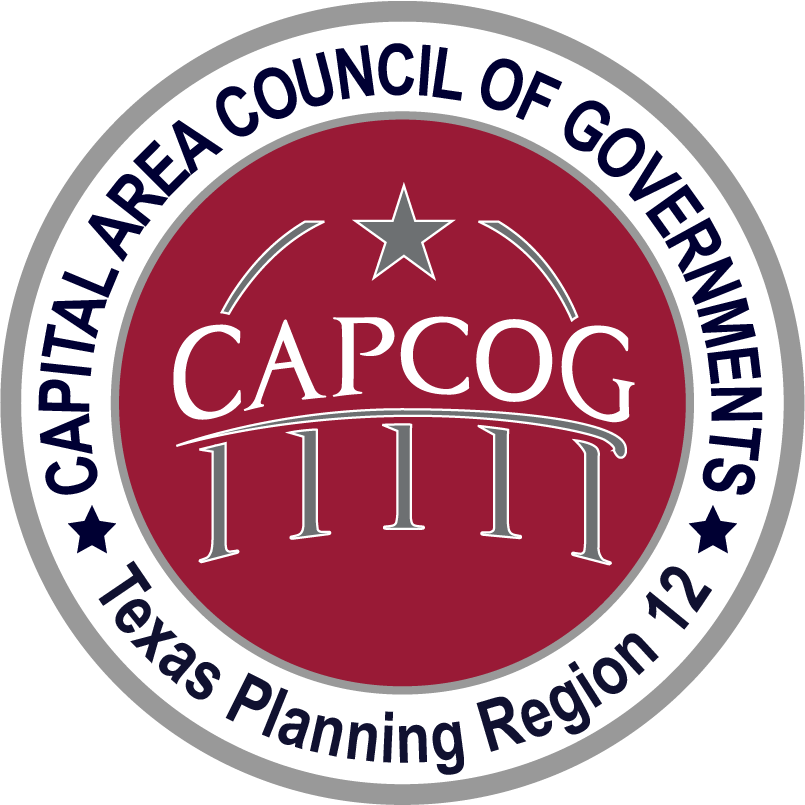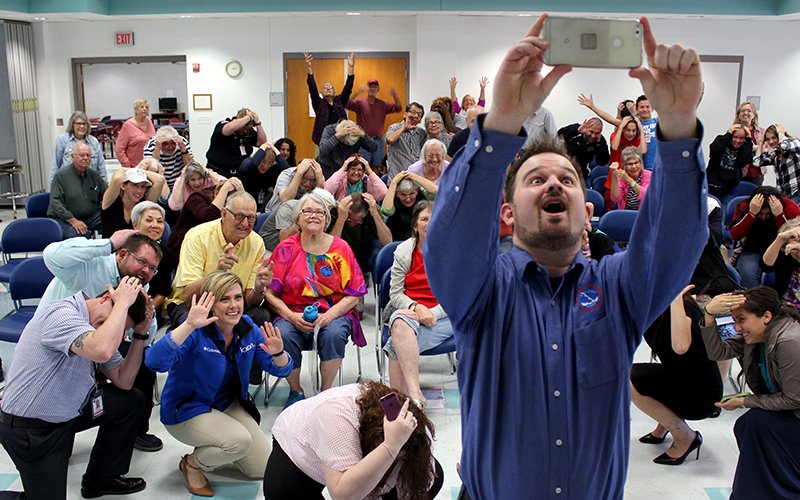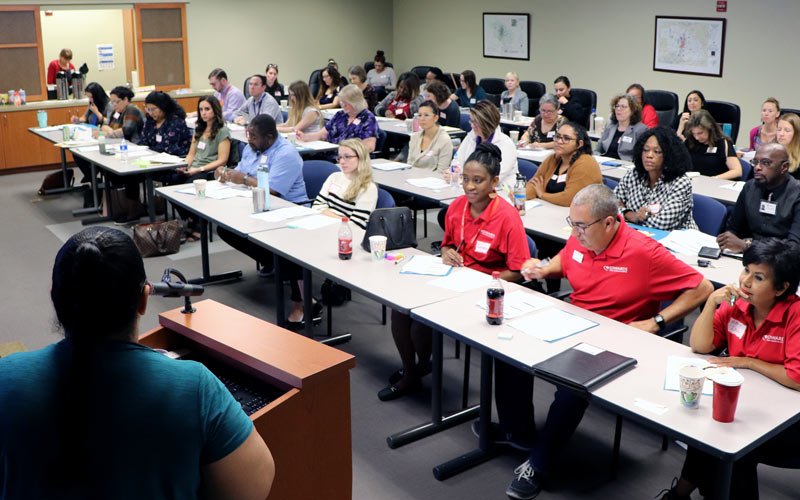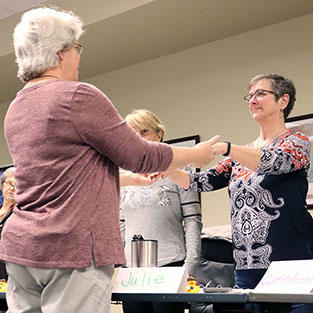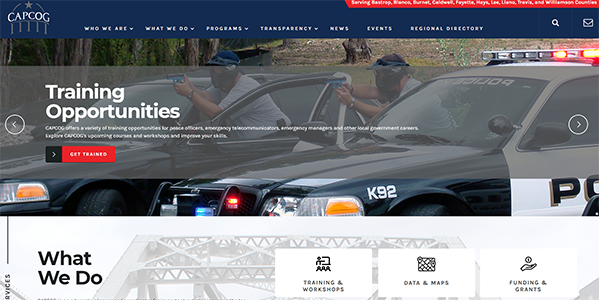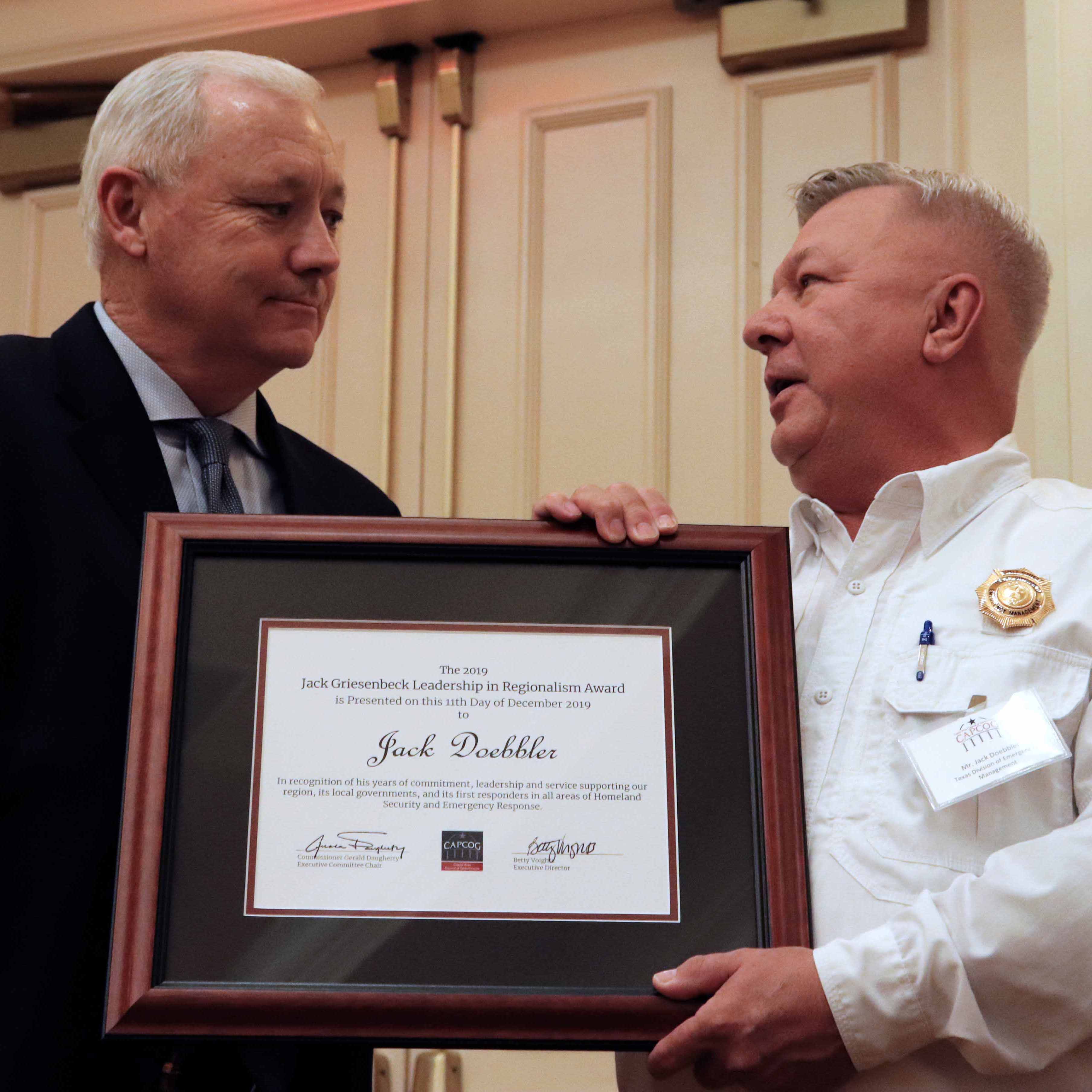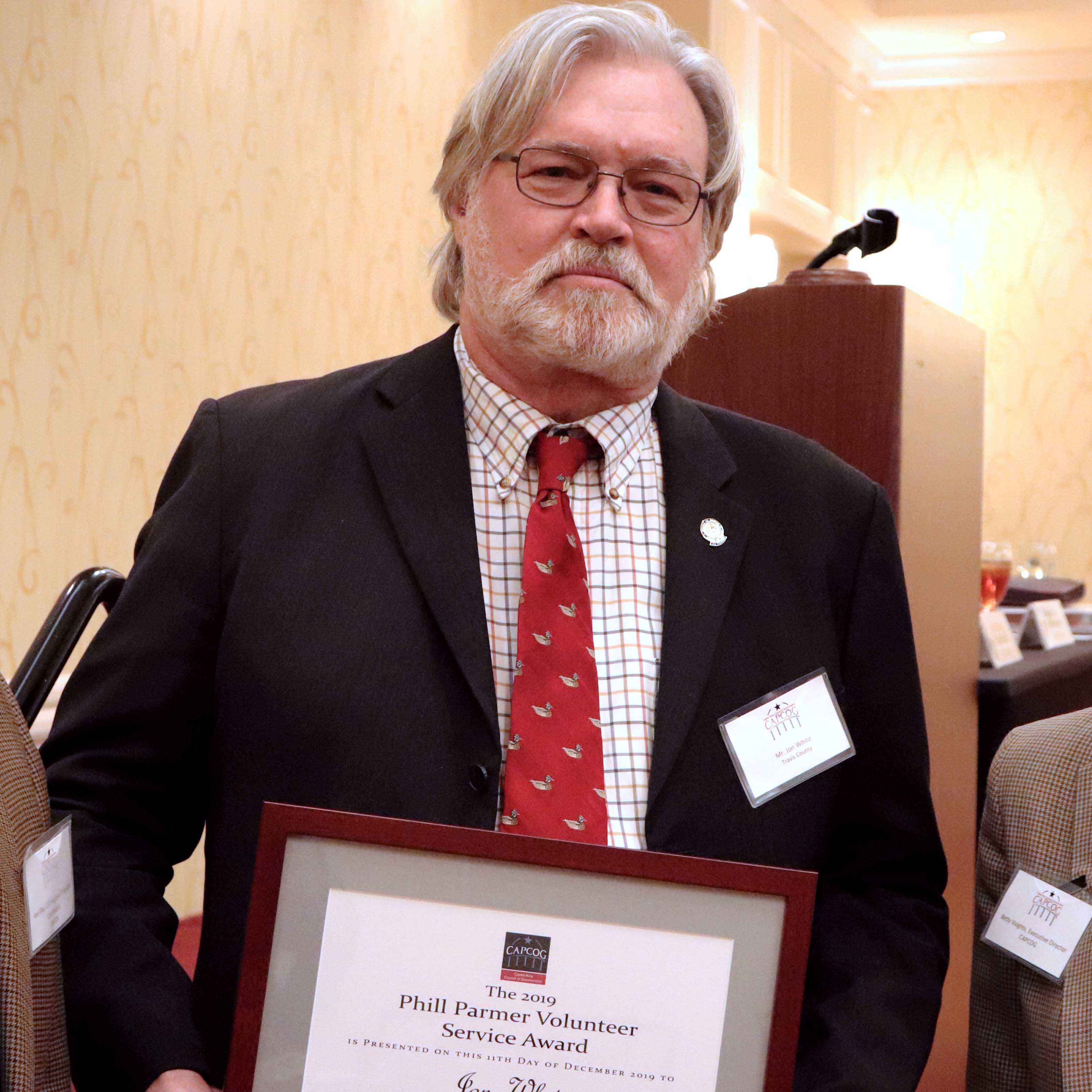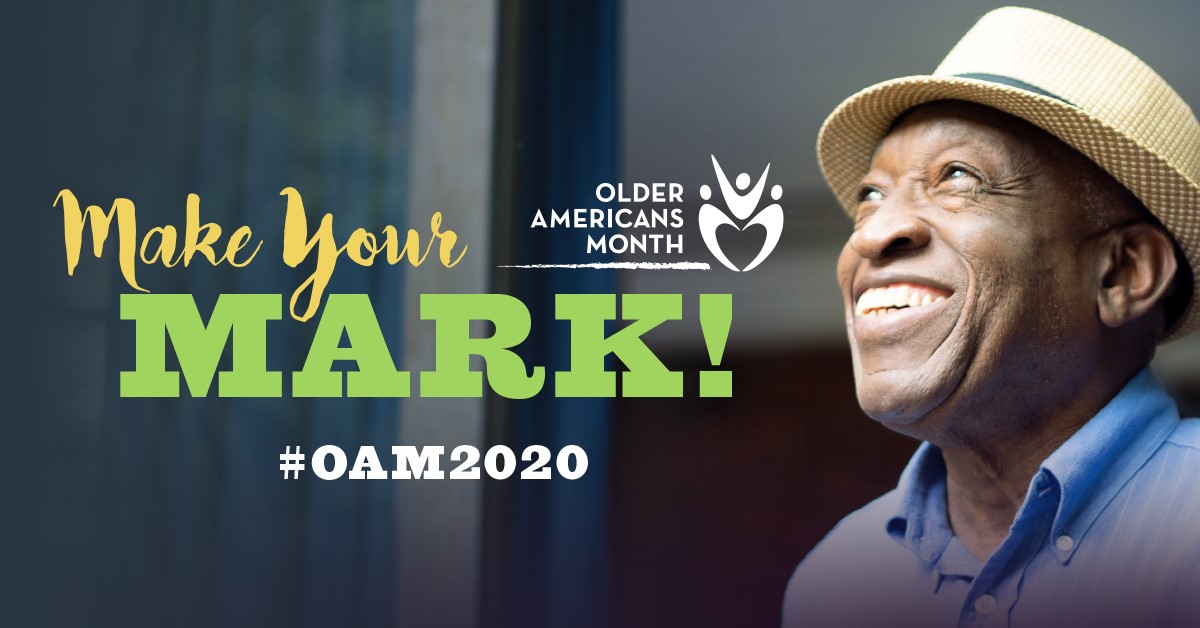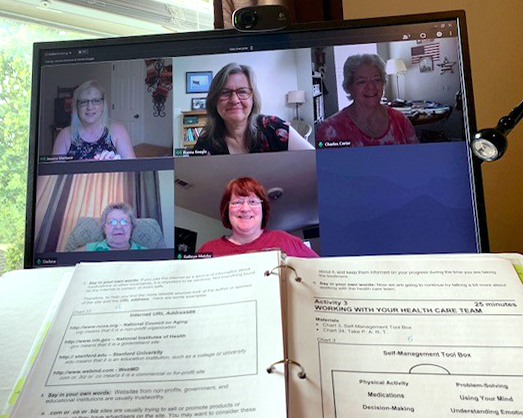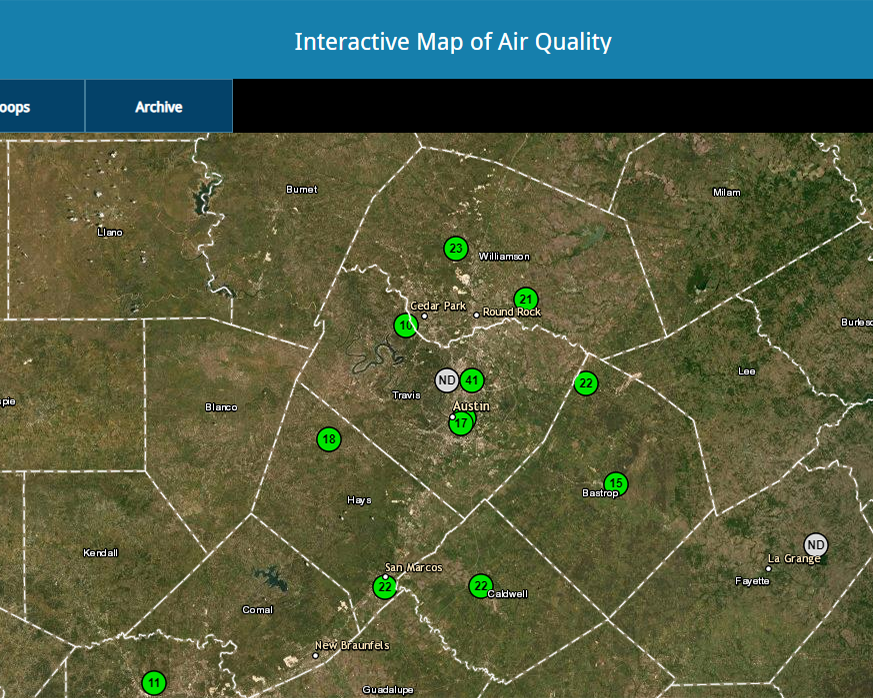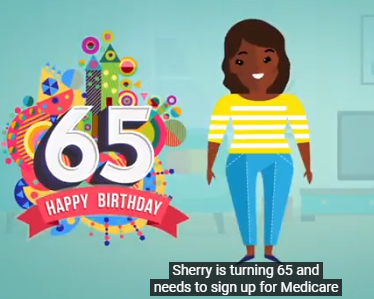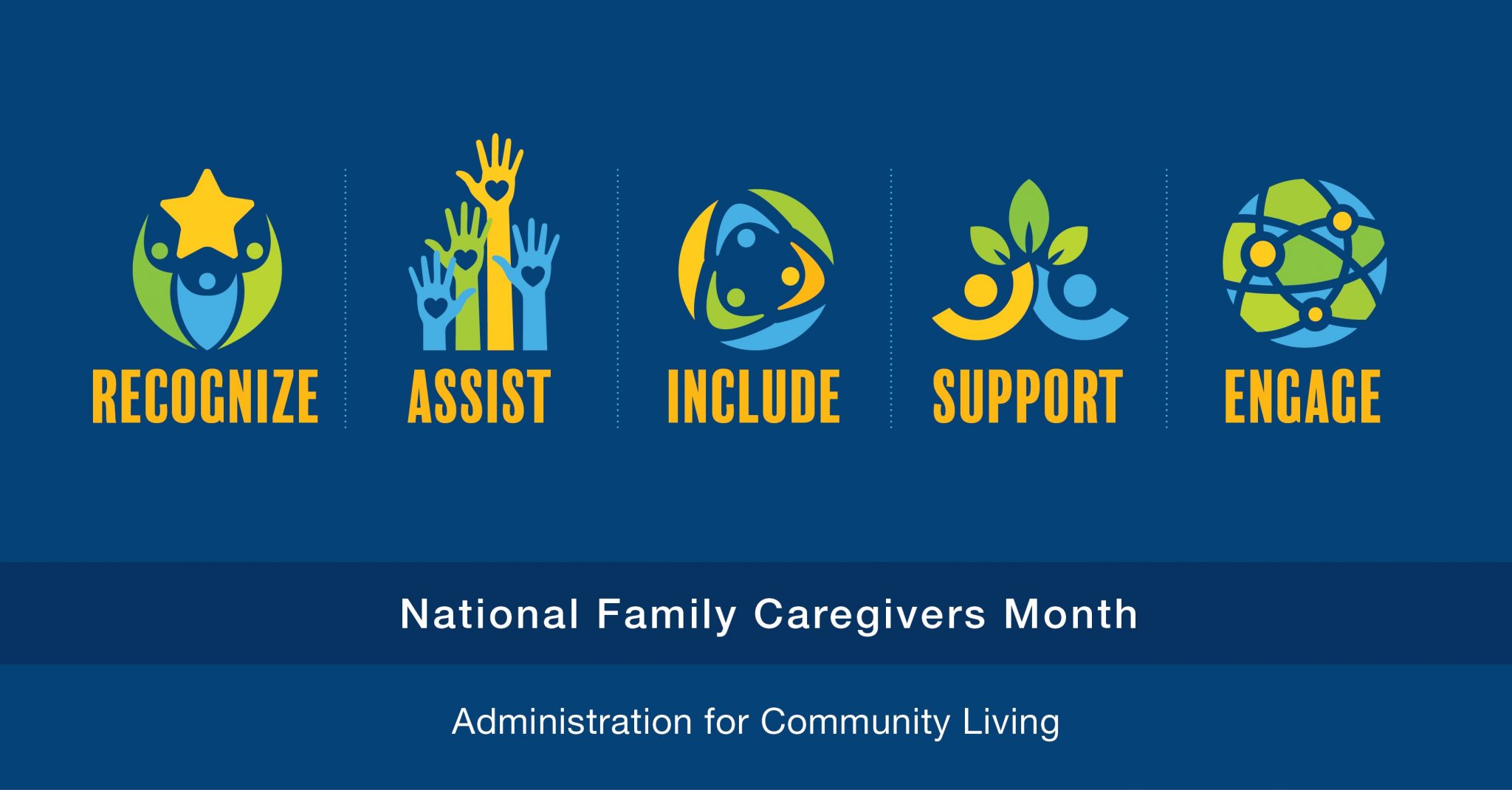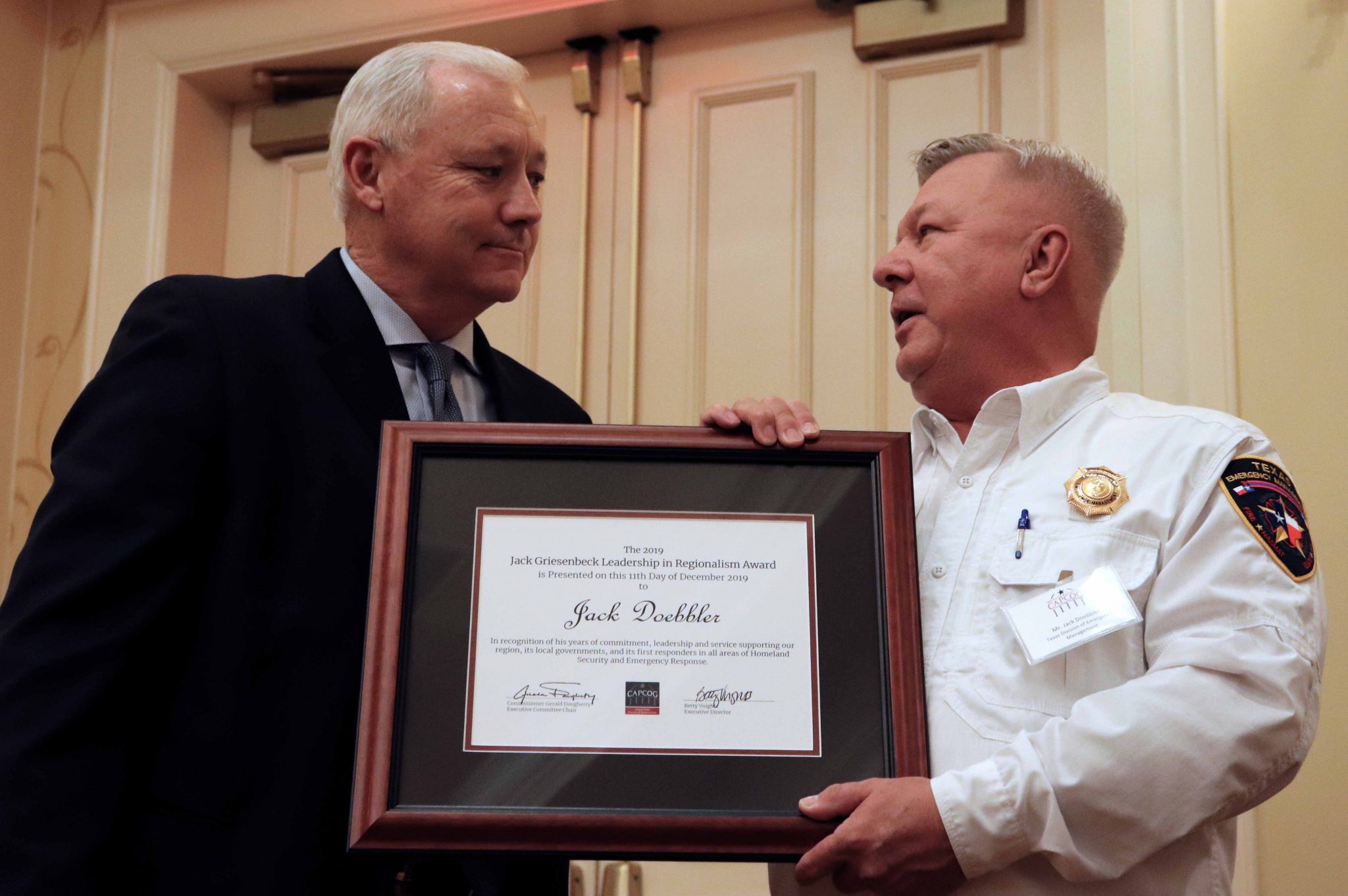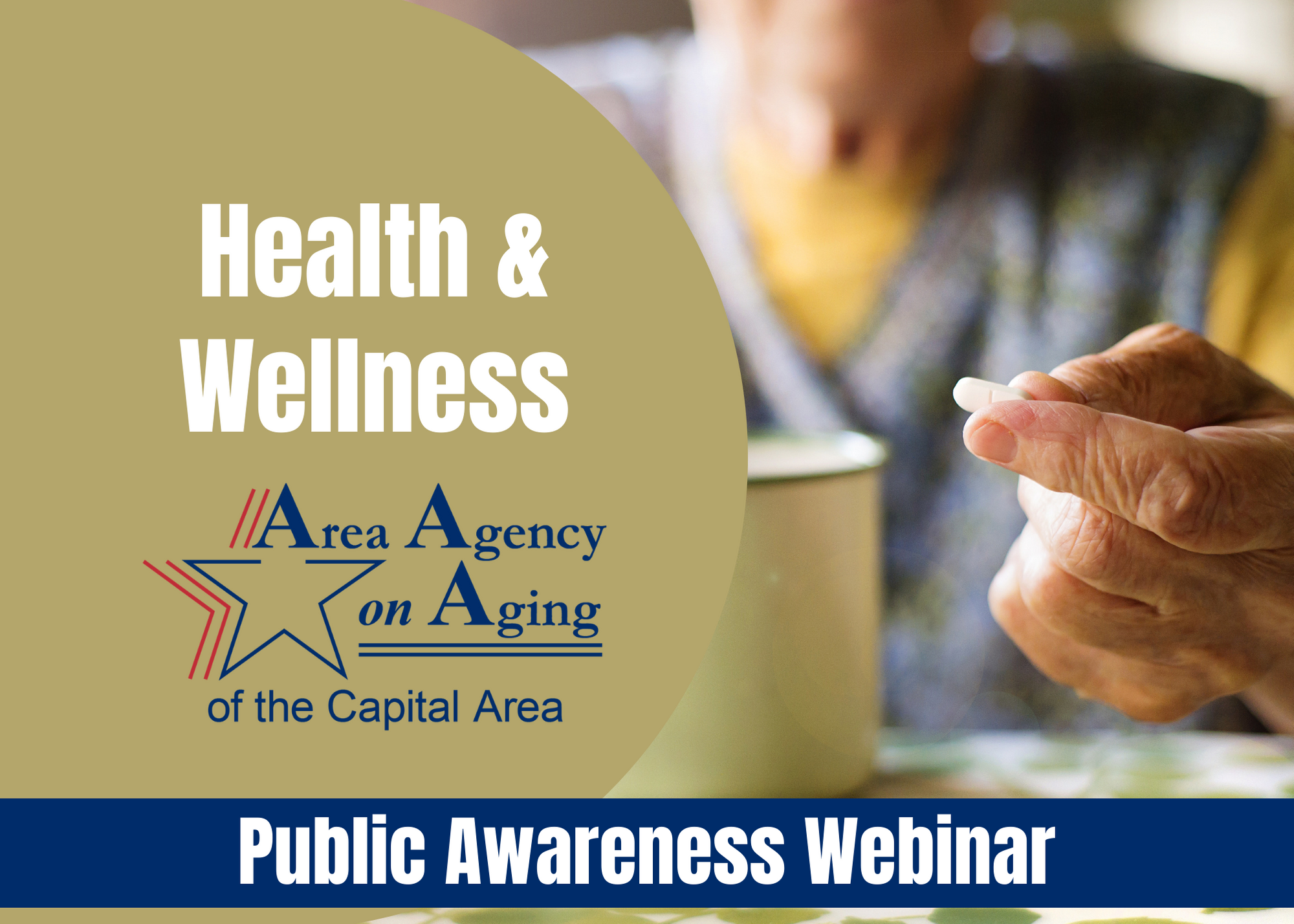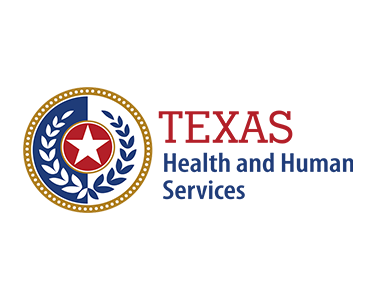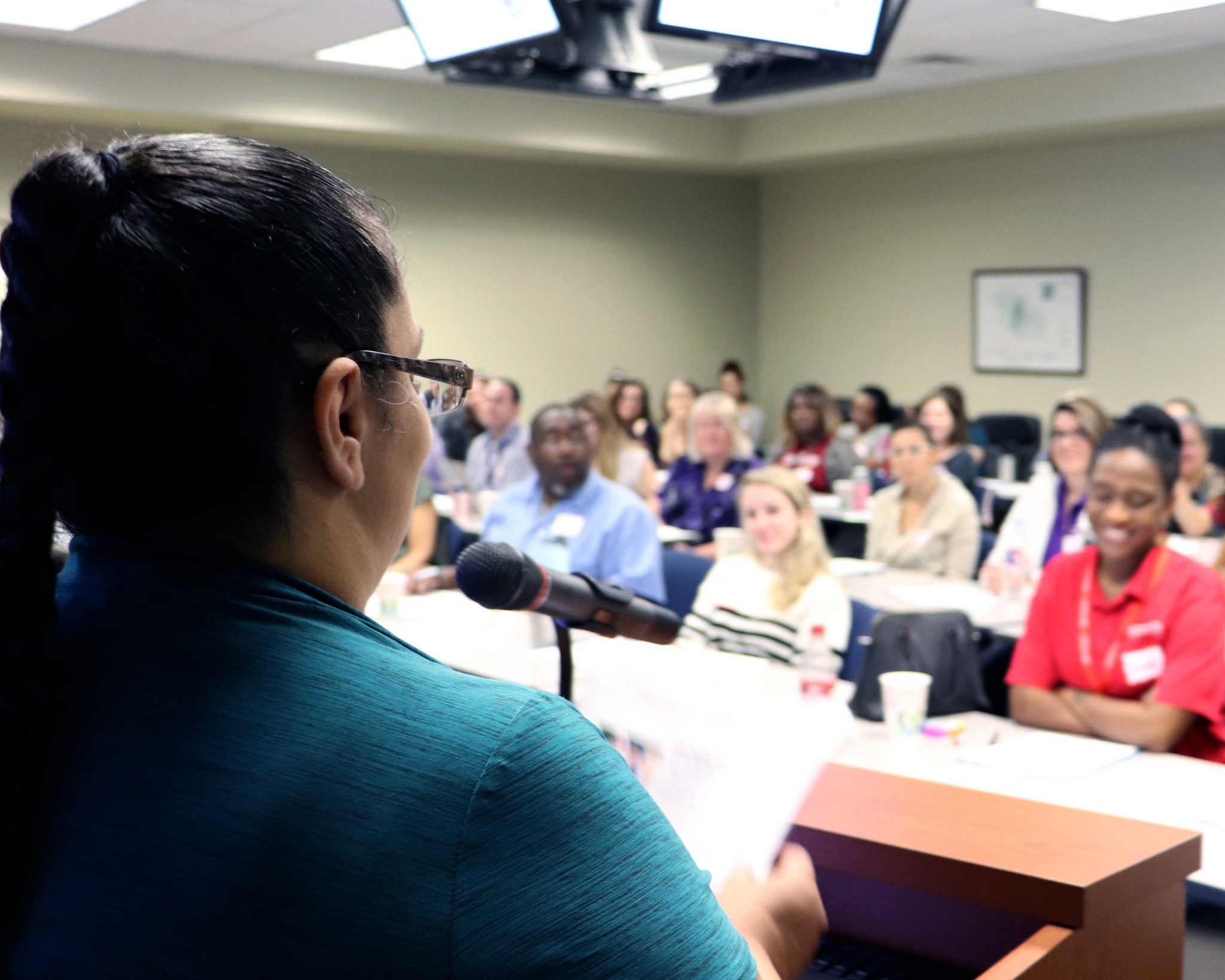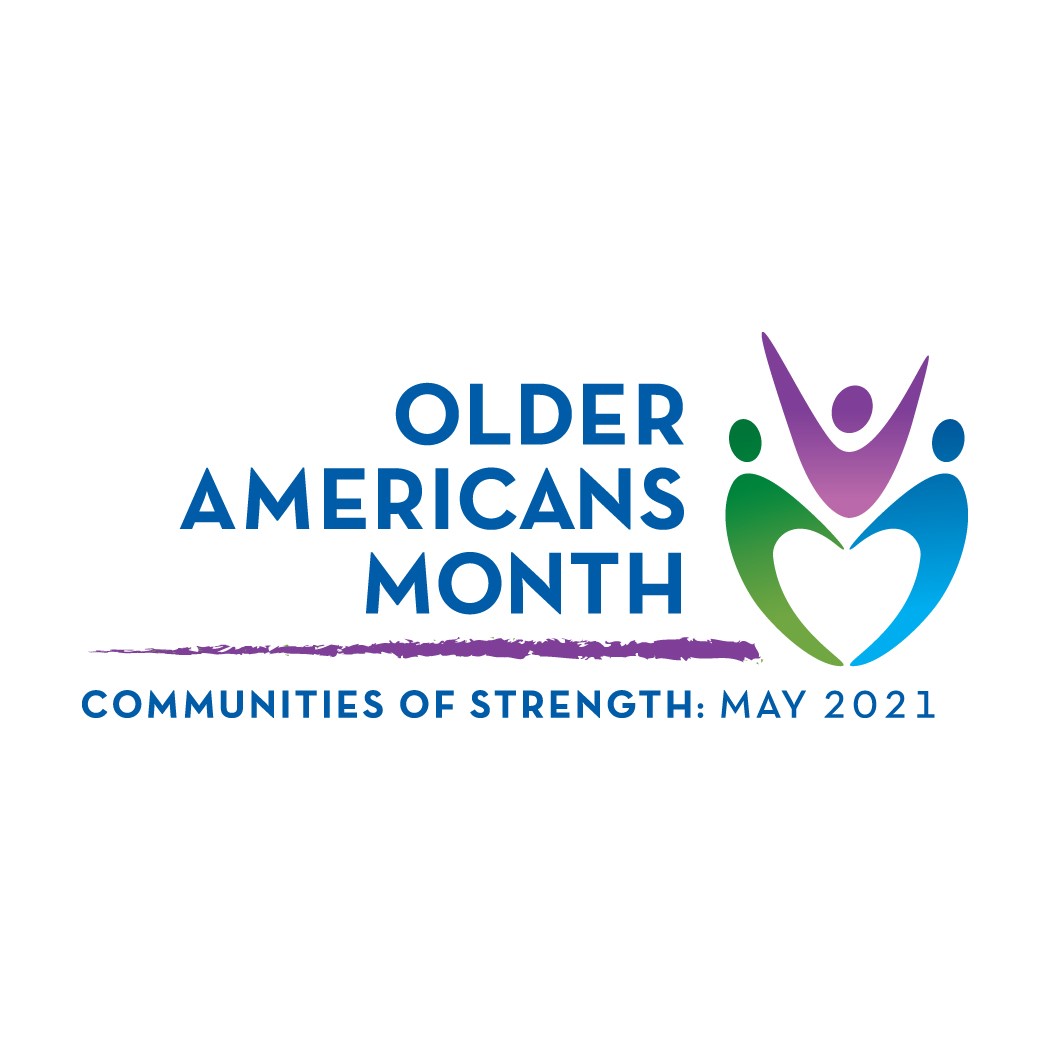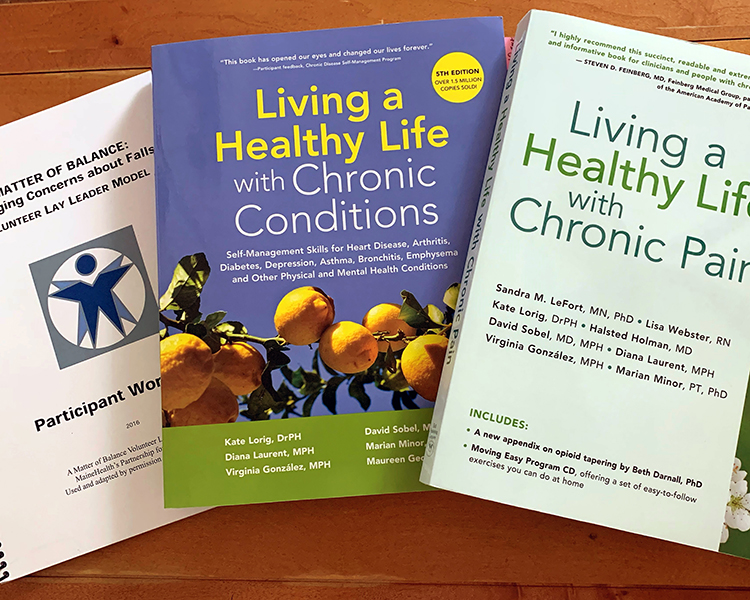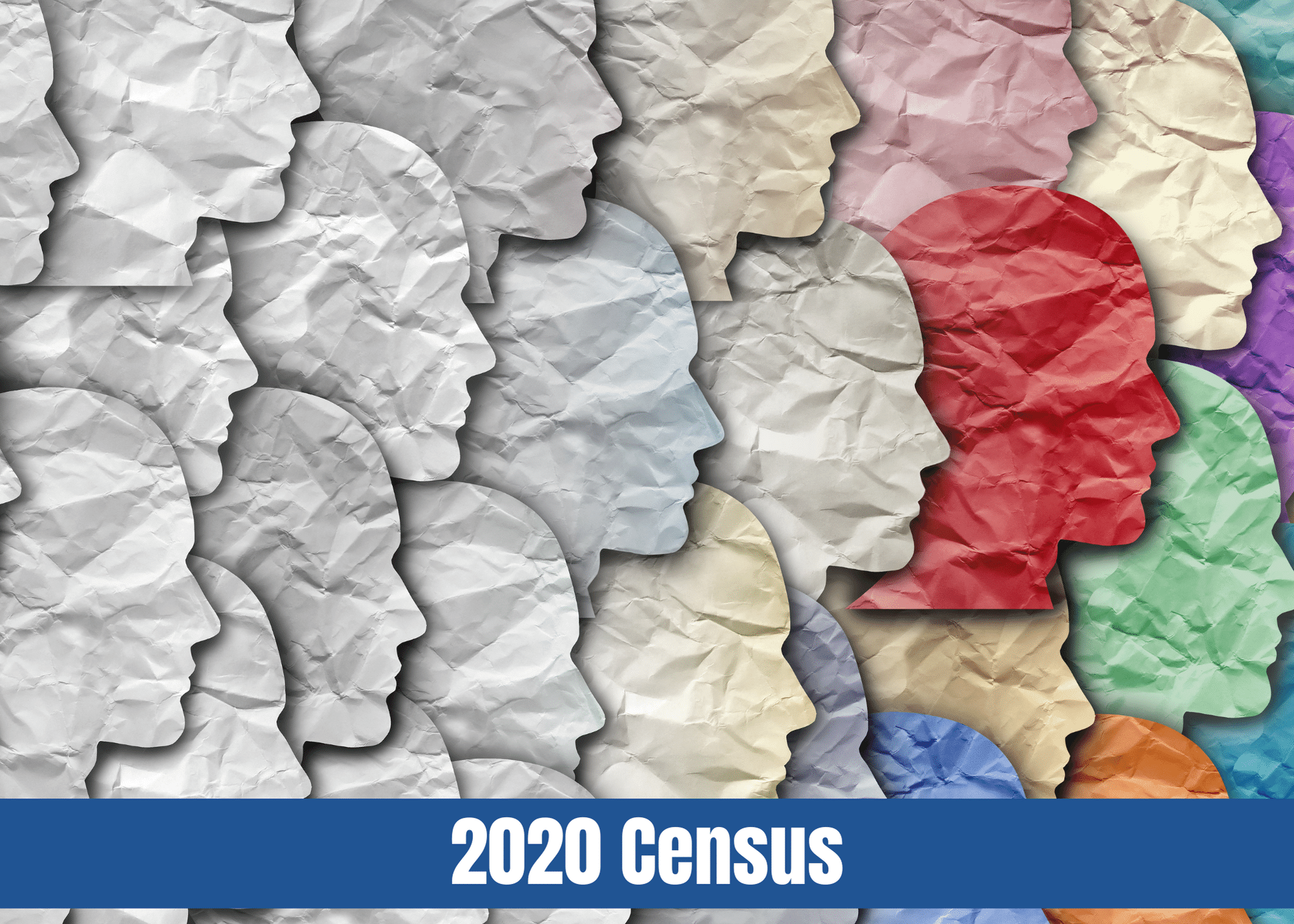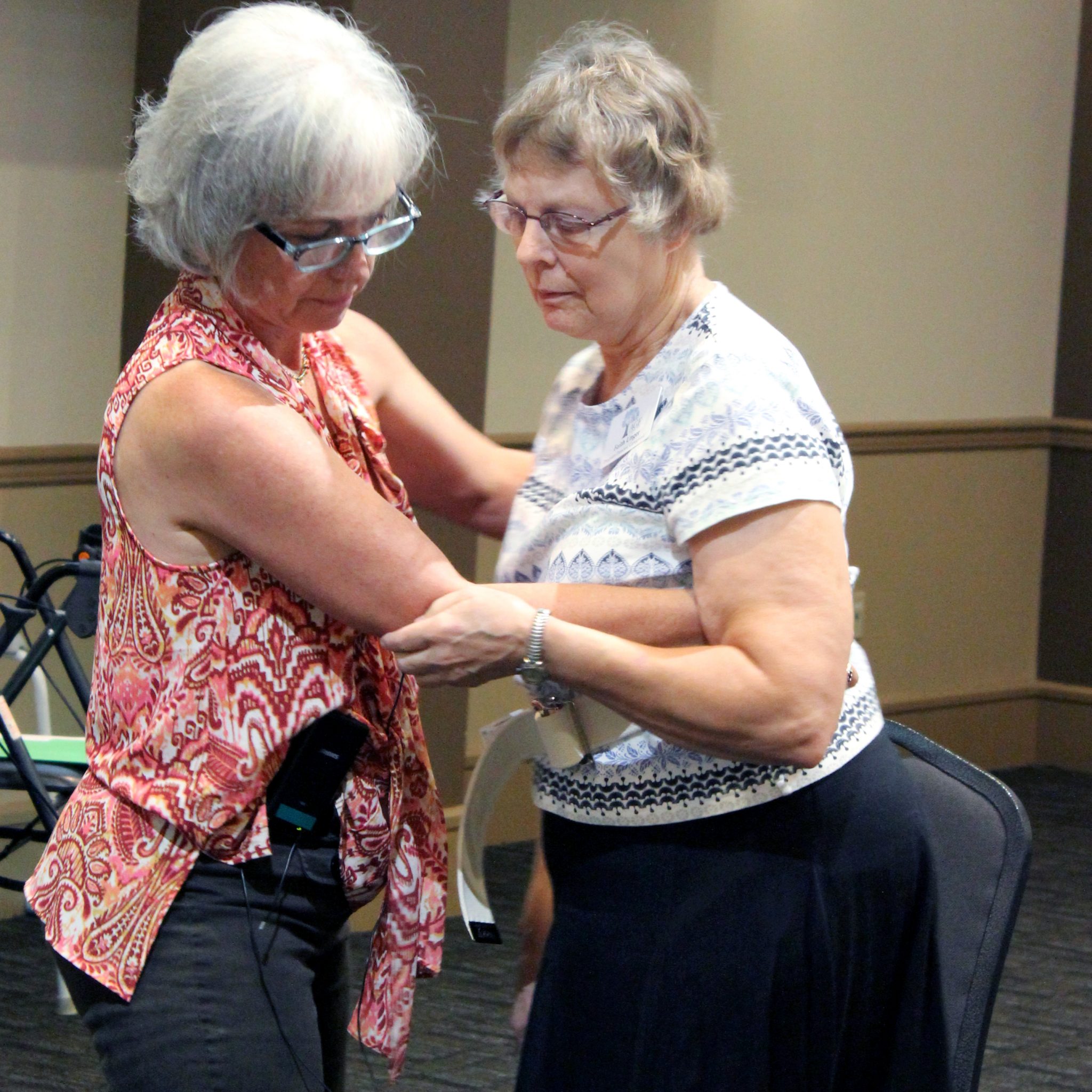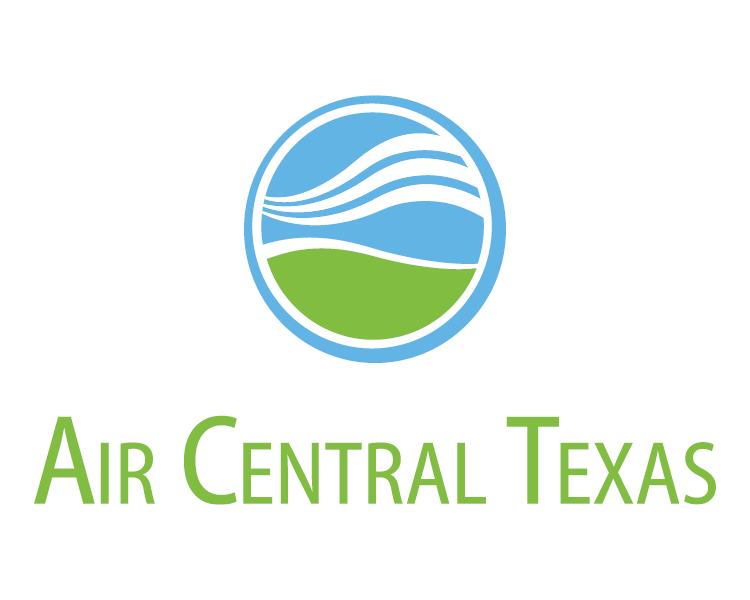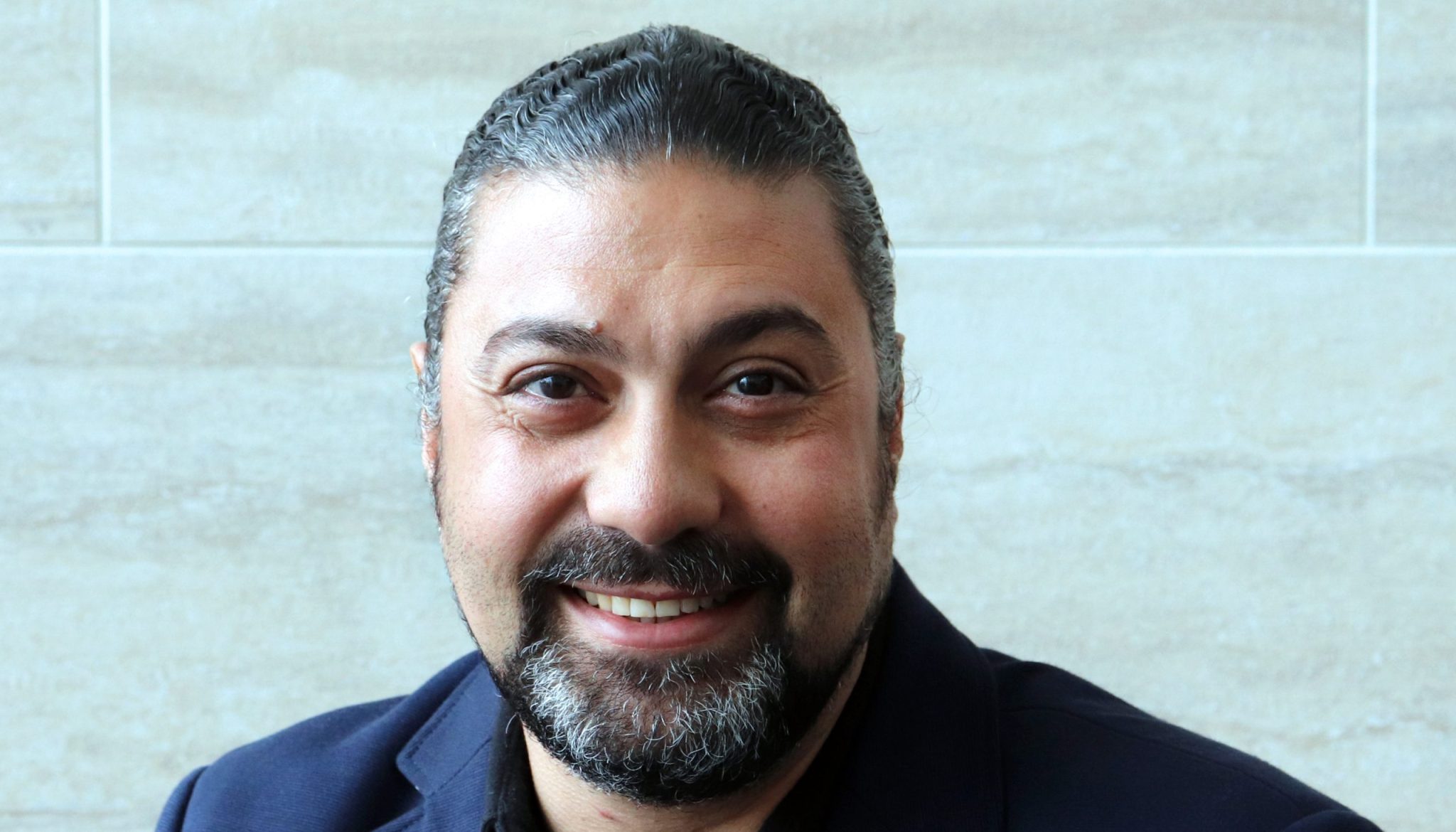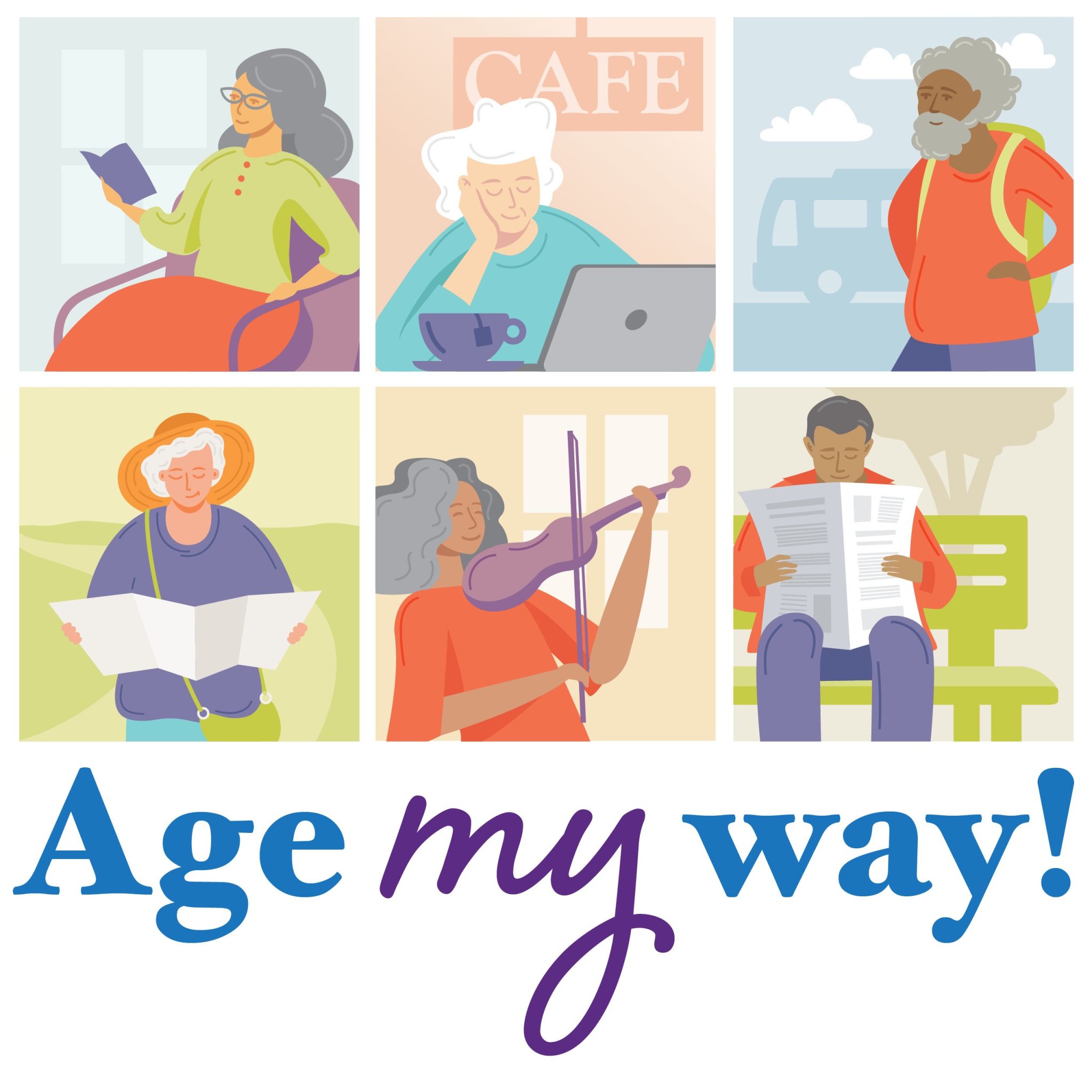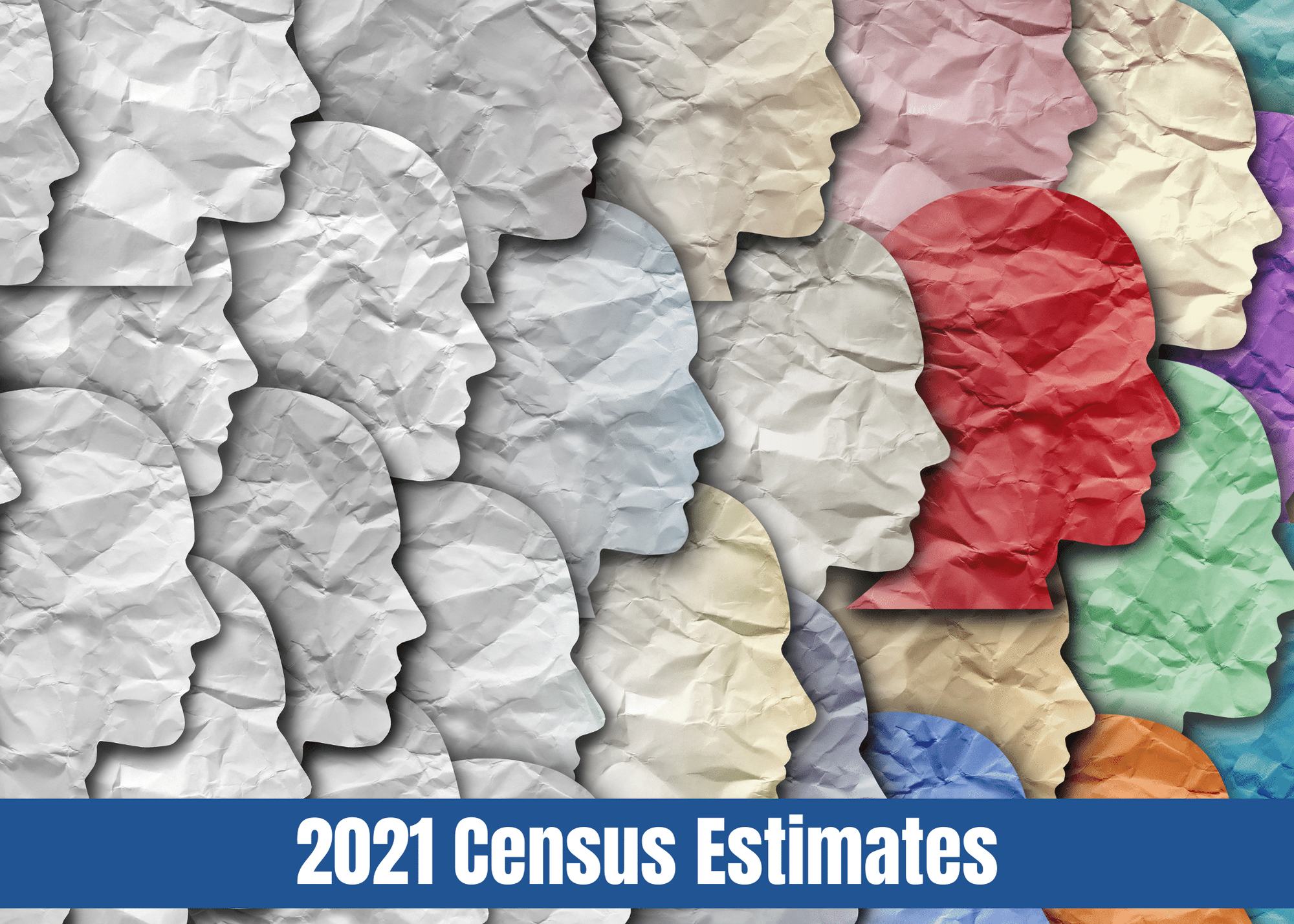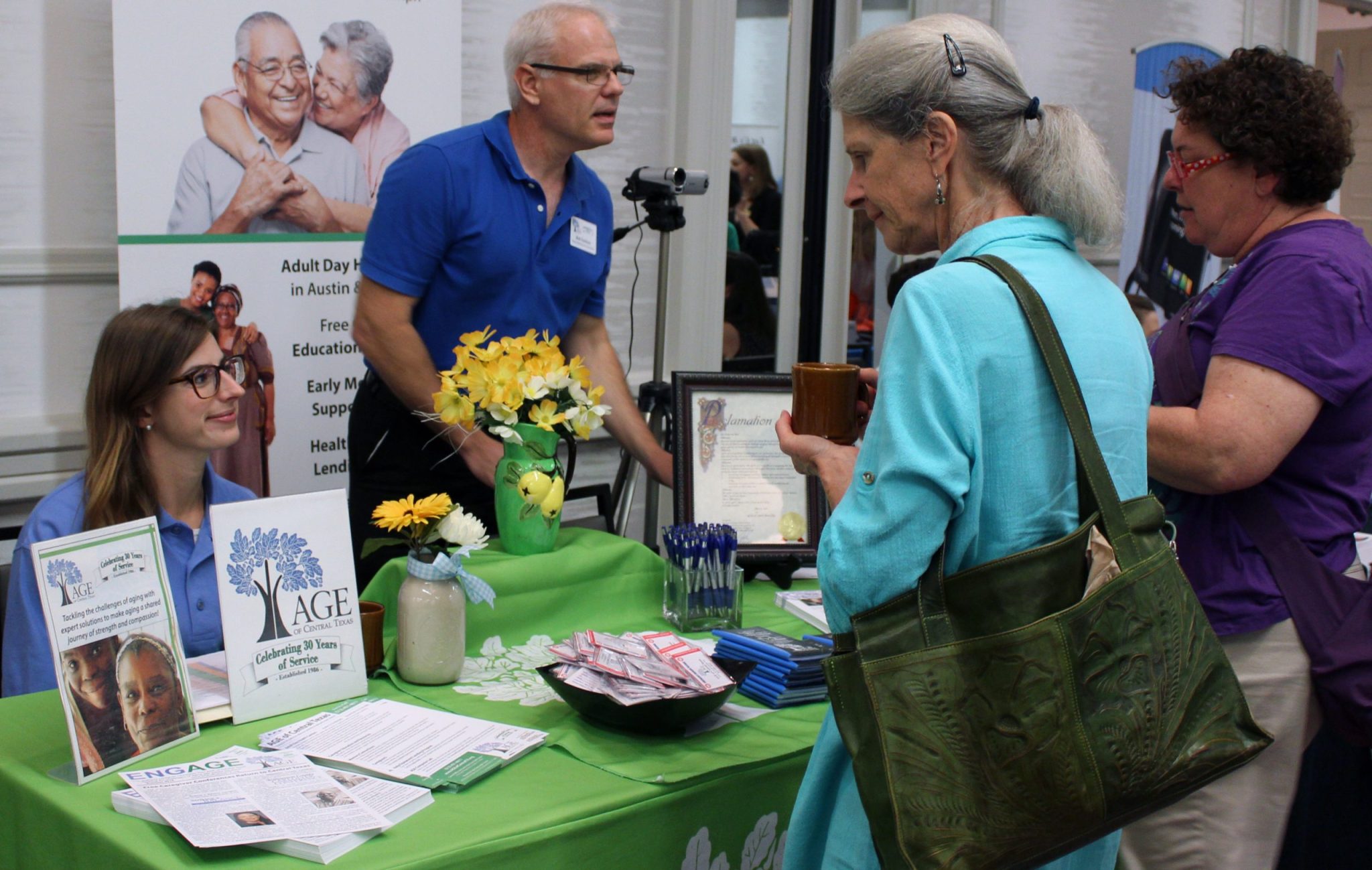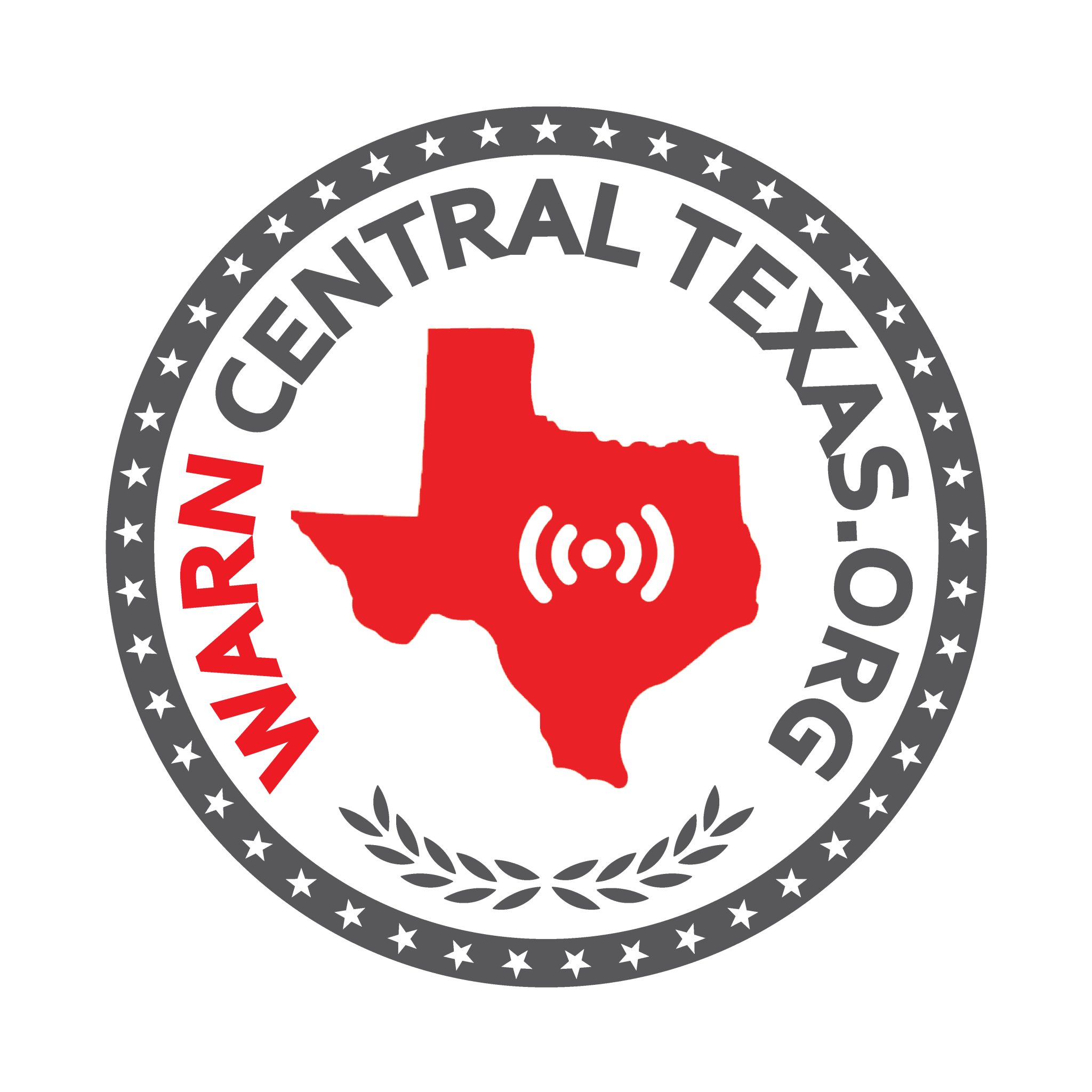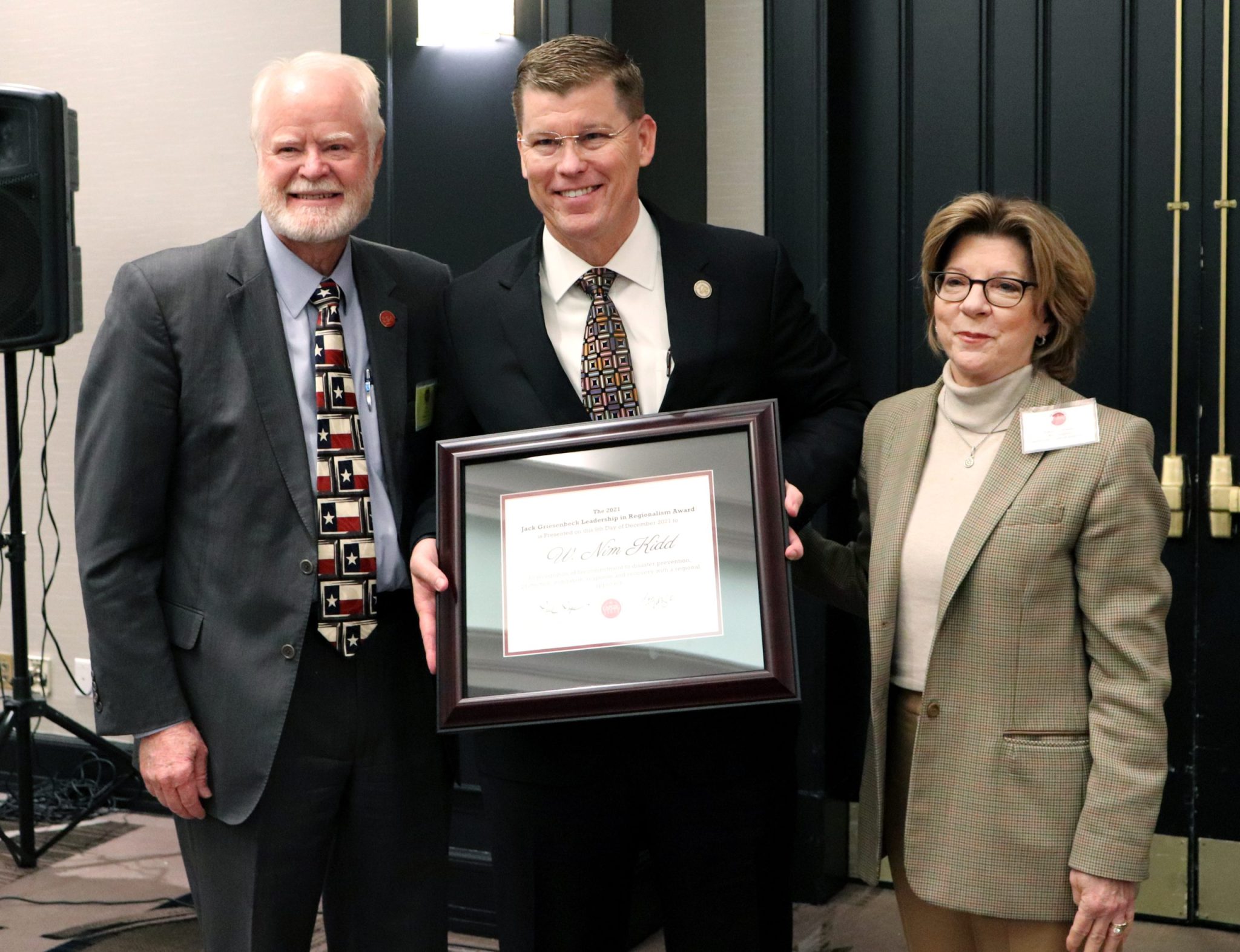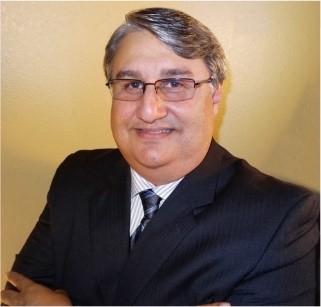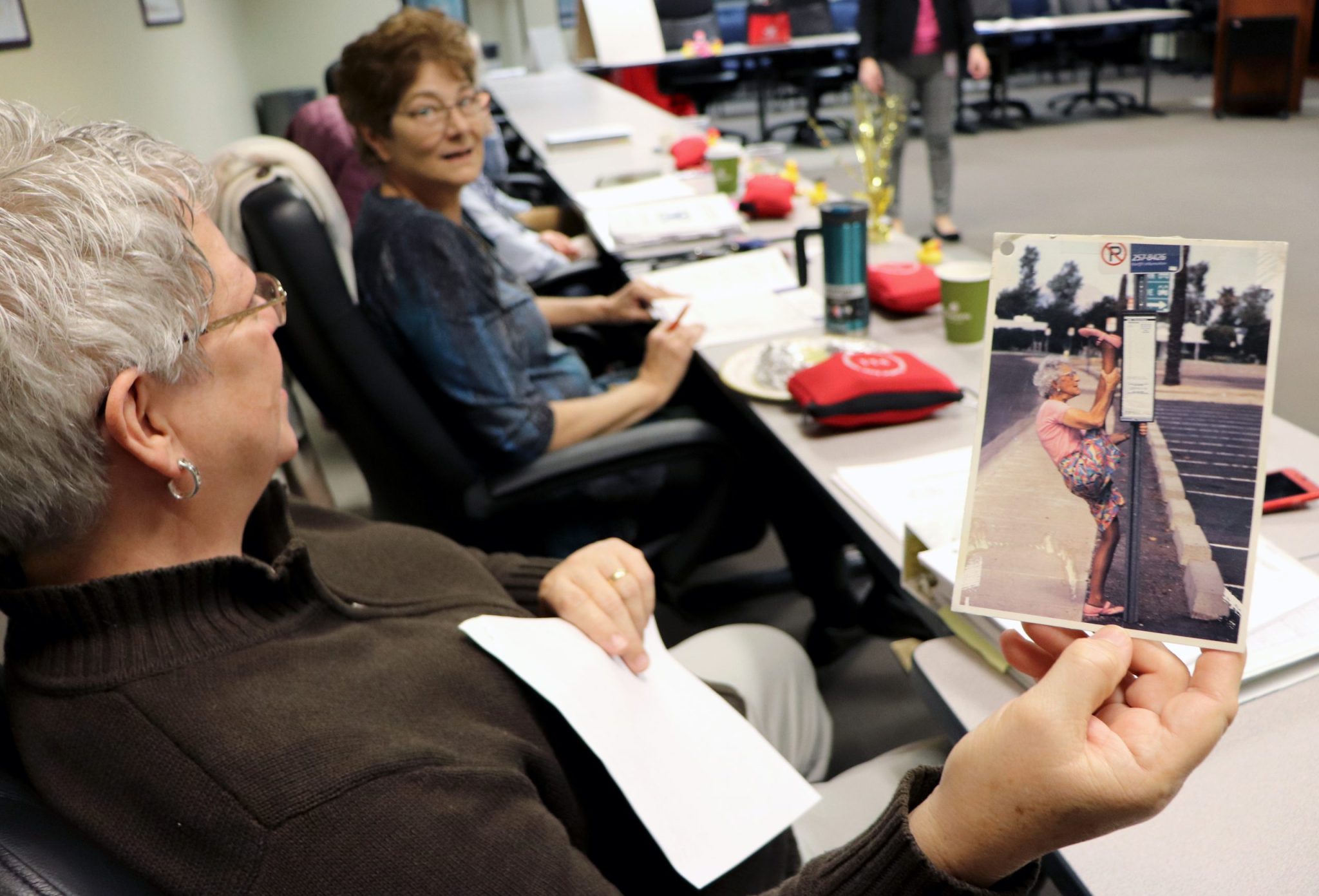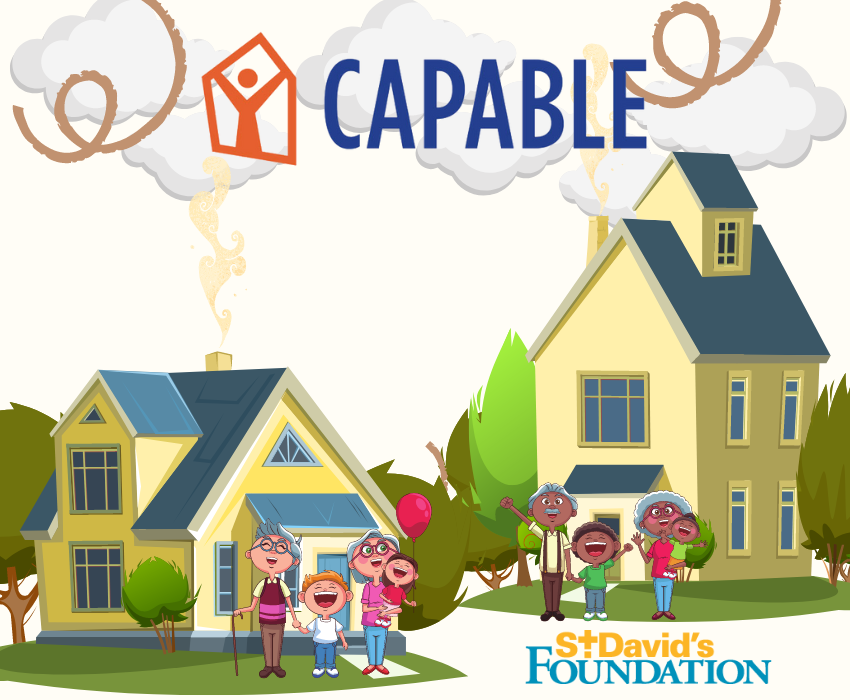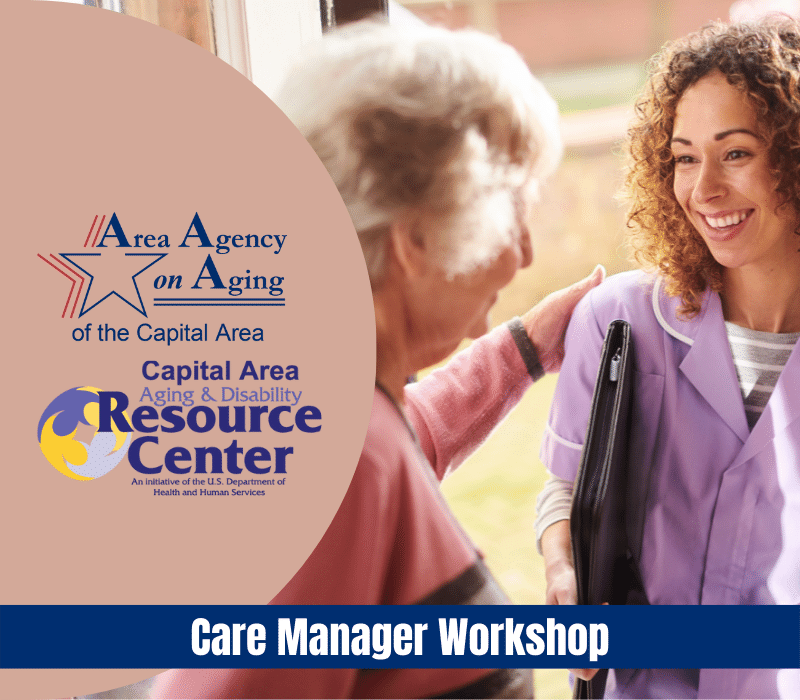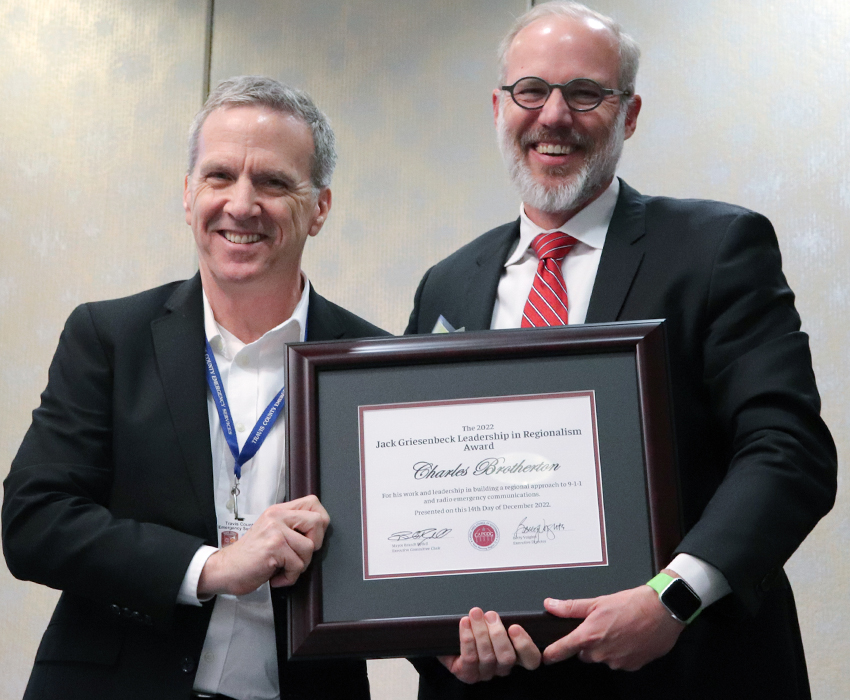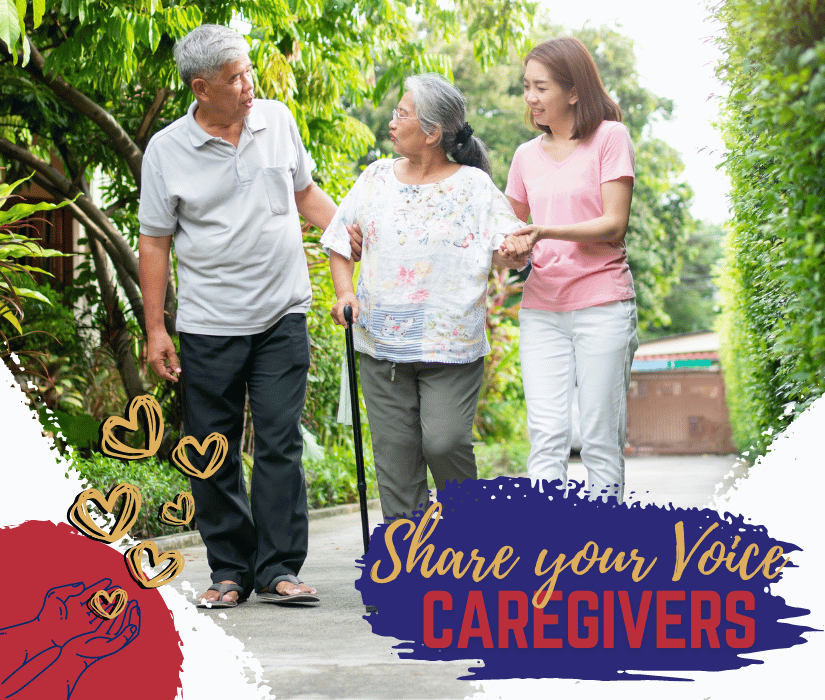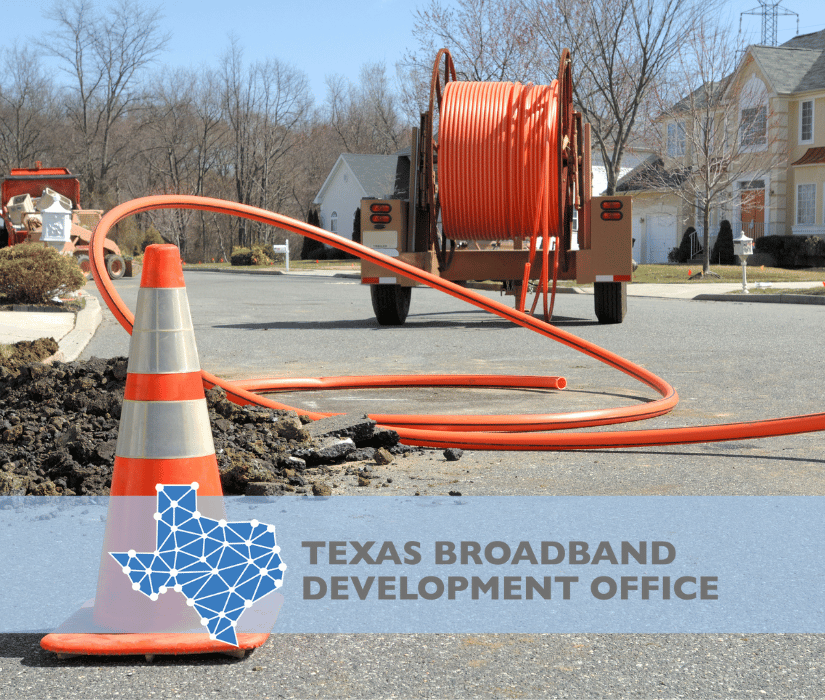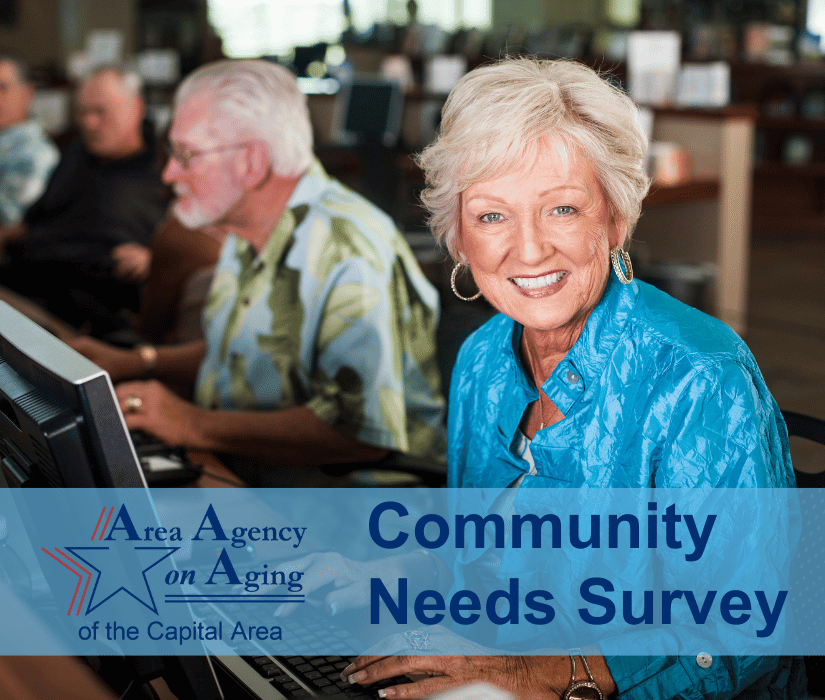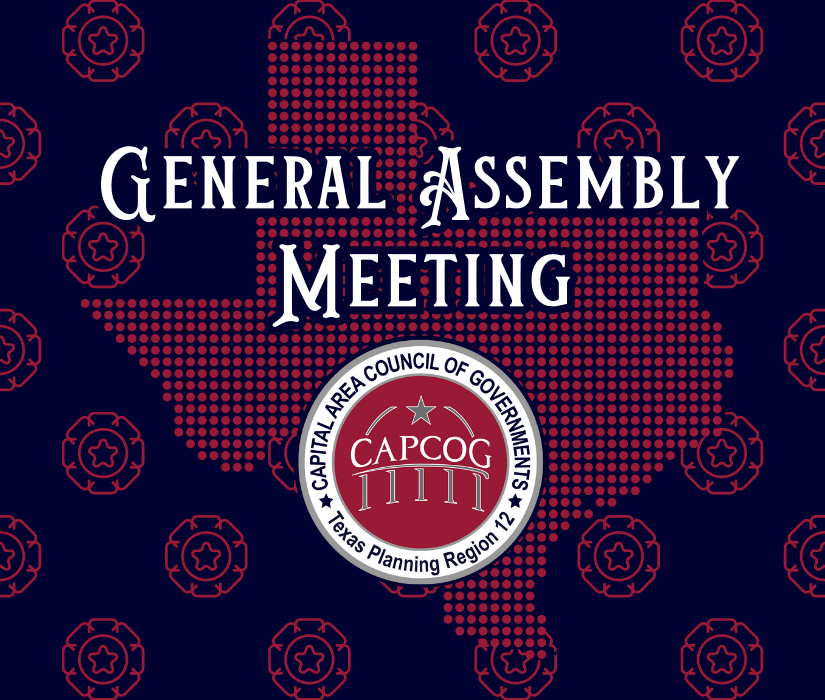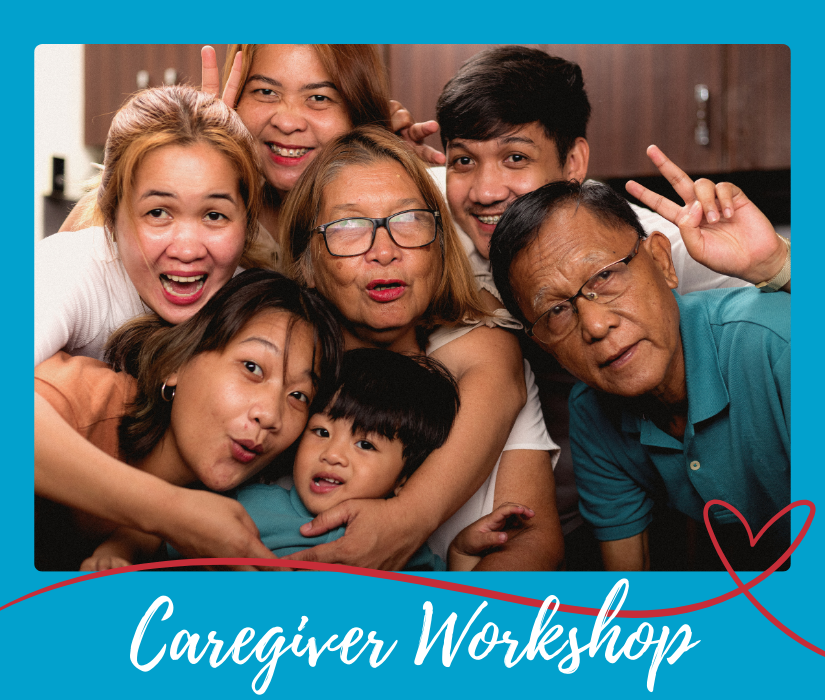- Area Agency on Aging (AAACAP)
- Aging and Disability Resource Center (ADRC)
- ADRC FAQs
- Ombudsman
- Resources
- Volunteer Options
- Medicare Open Enrollment
- Striking A Balance
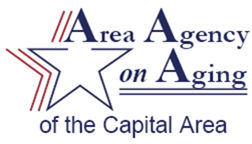
AAACAP provides services to support and advocate for the health, safety and well-being of older adults in CAPCOG 10-county region — Bastrop, Blanco, Burnet, Caldwell, Fayette, Hays, Lee, Llano, Travis and Williamson counties.
Since 1982, it has provided services that help meet your needs or the needs of someone you care for. AAACAP directly provides older adults and their caregivers through its Access and Assistance program, Benefits Counseling, Long-term care and Assisted Living Facilities Ombudsman services, Care Coordination and Information, Referral and Assistance services. AAACAP provides services to caregivers under the National Family Caregiver Support Program. It also contracts with other agencies to ensure the availability of services such as transportation, nutrition, homemaker and senior center operations.
Contact the Area Agency on Aging
Aging Services Information, Referrals, and Assistance
512-916-6062 or 888-622-9111
Email AAACAP Information, Referral and Assistance.
Ombudsman Program
Nursing Home and Assisted Living Residents should contact the AAACAP Ombudsman program.
Trained staff is available to provide information for referral agencies and outside service providers to further assist you. AAACAP is staffed with Spanish speaking personnel.
Find AAACAP and ADRC services in the Care Guidance & Services section.
Sign up for the AAACAP and ADRC e-newsletter.
AAACAP is funded in part by Texas Health and Human Services, its services are provided without cost to residents throughout the 10-county CAPCOG region.
Older Adult Regional Planning
AAACAP plans, develops and provides a coordinated system of services designed to promote independence for persons 60 years of age and older with a primary focus on frail, rural and low-income minority individuals. This mission is mandated through the Older American’s Act of 1965, as amended (OAA), and supported by Texas Health and Human Services.
The 2024-26 AAACAP Area Plan tells the story of the region’s older adults through demographic data and community surveys; it also sets goals and strategies for assisting people to live as independently as possible.
Read the 2024-26 AAACAP Area Plan.
AAACAP’s previous area plan was for 2021-22. The plan was extended to cover 2023 by the Texas Health and Human Services Commission.
Read the 2021-22 AAACAP Area Plan.
To review previous Area Agency on Aging Area Plans, contact Janine O’Roy.
AAACAP, CAPCOG Provided Services & Resources
CAPCOG, through AAACAP, provides a many services to older adults throughout the 10-county region. Among them are federal and state funding to congregate and home-delivered meal programs; ombudsman services, that help advocate for older adults living in long-term care and assisted-living facilitates; health and wellness programs and more. A number of these services are geared toward assisting older adults or their caregivers, so they can age well and age in place.
Find your Care Guidance & Service.
Celebrating Aging
Older Americans Month – May
Every year, CAPCOG joins the U.S. Administration for Community Living in celebrating May as Older Americans Month. This year’s theme, Age My Way, highlights how planning, participation, accessibility, and making connections all play a role in aging in place.
Read the 2022 CAPCOG proclamation sample.
Find ideas to celebrate Older Americans Month.
National Family Caregivers Month – November
Every November, CAPCOG joins many organizations in recognizing the work put forth by family caregivers in caring for their loved ones. According to the AARP, there are 3.4 million family caregivers throughout Texas who provide $35.1 billion worth of unpaid caregiving services.
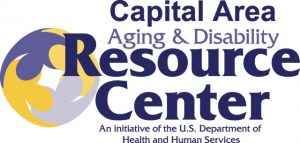
The Aging and Disability Resource Center (ADRC) of the Capital Area is a single access point to long-term services and support program benefits for older adults, those with disabilities and their caregivers. With a network of federal, state, and local governments and nonprofit organizations, the resource center supplies older and disabled residents the single best resource for discovering information about services and benefits they need.
No-wrong-door approach
Using the no-wrong-door approach, the resource center assists consumers in accessing a variety of services and benefit programs by being a single point of contact. Services can range from Medicare application assistance to locating accessible housing resources in the resident’s community. The ADRC inquires about a person’s needs and then refers the appropriate organization to the consumer instead of referring the consumer to the appropriate organizations. This approach streamlines the process for people seeking information. It also prevents the consumer from retelling their story multiple times to discover what benefits will meet their entire needs. Instead, every person, who seeks the ADRC’s assistance, shares their story once with the center before the center connects the best benefit resources or service options to the consumer. The ADRC serves individuals in CAPCOG’s ten-county region: Bastrop, Blanco, Burnett, Caldwell, Fayette, Hays, Lee, Llano, Travis and Williamson counties.
Contact the ADRC
|
By Phone |
By Email |
In Person |
Sign up for the ADRC and AAACAP e-newsletter.
Housing Navigation (Housing Support)
The ADRC of the Capital Area is committed to supporting accessible and affordable housing in the Capital Area by working with nonprofit, government and for-profit entities to increase consumer access housing.
Discover the ADRC Housing Navigator Program and use its interactive, affordable housing map.
Partnered Financial Support Programs
Adults older than 60, persons with disabilities and caregivers may be eligible for the following ADRC financial support programs:
Lifespan Respite Grant Program: It’s time for a Break
Caring for a loved one can take a lot out of someone mentally and physically. Everyone needs time to study, buy groceries, or just be alone. The Lifespan Respite Grant Program assists with off-setting the cost of receiving respite care for caregivers who meet the programs qualifications and if funding is available.
The types of care offered through the Life Respite Grant Program include:
- In-home — provided by home care agencies
- Center-based — adult or child day-care facilities and services
- Community Access — individual or group activities
- Out of home — camps
Program Qualifications include:
- An unpaid family caregiver
- Difficulty accessing respite care
- NOT enrolled in another government/non-profit respite or Medicaid waiver program
- Care receiver, of any age, with special needs, a disability or a chronic condition.
Contact the adrc@capcog.org or call 855-937-2372 for more information.
Austin Energy Plus 1 Program
A partnership between the City of Austin and CAPCOG, operating at the ADRC, has made it possible for the ADRC to help provide income support for Austin utility customers. This program provides emergency financial aid to customers who are having a temporary problem paying their utility bills if they meet the programs’ criteria.
There are many reasons older adults, people with disabilities, and their caregivers can fall behind on utility payments such as suddenly paying for in-home care or the unexpected cost of a hospital visit caused by a fall.
The program’s criteria includes:
- Austin utility customer
- Client assistance is for residential accounts only (home of residence)
- Plus 1 funds cannot be used for utility deposits
- Persons age 60 or older
- Primary caregiver for an adult 60 years of age or older
- Primary caregiver for an individual of any age with a diagnosis of Alzheimer’s or disease-related dementia
- Non-parental caregiver, age 55 or older, for an adult with severe disabilities
- Kinship – Grandparents or other non-parent relatives age 55 or older with formal or informal custody of a relative child age 18 years or younger
- Older relatives, age 60 or older providing care to adults, ages 18-59 with disabilities
- Medicare-eligible persons
- Persons of any age with a disability
- Caregivers for persons of any age with a disability
For residents not living in Austin, there is a chance the ADRC can still help through a similar AAACAP program.
Contact the adrc@capcog.org or call 855-937-2372 for more information.
ADRC Partners & Steering Committee
The ADRC works with a growing and diverse list of area partners to connect people with the services and resources they need. Among those partners are those organizations that play a critical role in providing direction and information to the ADRC as part of its steering committee. The committee works to enhance the program’s ability deliver the most appropriate resources and supports to the people seeking ADRC’s assistance.
Organizations participating in the steering committee include:
2-1-1/United Way for Greater Austin
AGE of Central Texas
Alzheimer’s Association of Central Texas
Amerigroup Real Solutions
Any Baby Can
Austin Resource Center for Independent Living (ARCIL)
Area Agency on Aging of the Capital Area
Aspire to Age
Austin Asian Community Health Initiative
Housing Authority of the City of Austin
Bluebonnet Trails Community Services
Capital City Village, Austin
Capital Metro Access
Capital Area Rural Transportation System (CARTS)
Central Texas Food Bank
Austin Public Health, Health Equity Unit
ConnectATX
Del Valle ISD Special Education
Family Eldercare
First Light Home Care of Austin Senior & Respite Care – In-Home Caregiver Services
Hill Country Mental Health and Developmental Disabilities Centers
Humana Health Care
Integral Care
Lone Star Transportation
Meals on Wheels of Central Texas
South Asian International Volunteer Association (SAIVA)
Teas A&M AgriLife Extensions (various from around the region)
Texas Department of Family and Protective Services
Texas HHS, Access and Eligibility Services, Region 7
Texas SHS, Specialized Health and Social Services Region 7 Family Health Services
Texas Health and Human Services, Community Partner Program
Texas Legal Services Center
Texas Rio Grande Legal Aid
Texas Technology Access Program, UT Center for Disability Studies
Texas Veterans Commission
The ARC of the Capital Area
Travis County Health and Human Services, Coming of Age program
United Healthcare
University of Texas at Austin School of Nursing
Veterans Service Office, Llano County
Wags and Whiskers
WellMed Charitable Foundation
If your organization is interested in learning more about ADRC or becoming a ADRC Steering Committee partner to help enhance the program’s services, contact the ADRC.
The ADRC assists residents living in the 10-county capital region with accessing information about long-term services and supports, and public benefit programs offered to older Americans, the disabled, and their caregivers. It lessens the burden of connecting a resident with the information they need through its information, referral and assistance services, or resource navigators. The following FAQ can help residents better understand how the ADRC can help them.
Q: How does the ADRC provide help?
A: Resource navigators provide extensive and ongoing resource options for older Americans (those 60 years old or older), the disabled and their caregivers. Navigators provide help over the phone and in person. They follow the consumer through the ADRC services and are extremely beneficial to people who have multiple needs and who may need help from various resources and agencies. Navigators work to connect consumers as quickly and easily as possible to the resources they need. Navigators also work to ensure consumers can make informed decisions and have streamlined access to long-term services and support agencies.
Q: Can the ADRC help apply for disability benefits or long-term care?
A: Yes. Because the ADRC works with a number of organizations, it can either help people apply for benefits or direct an organization, such as the Area Agency on Aging of the Capital Area, to the person seeking the benefits.
Q: Does the ADRC offer help for family members?
A: Yes. Family caregiver support also is part of the ADRC’s mission. Taking care of loved ones may seem overwhelming at times, and the resource center works to alleviate such stress by referring the appropriate partner agencies to the consumers.
Q: Who can use the ADRC?
A: The ADRC offers assistance to older Americans, children and adults with disabilities, and people caring for those with disabilities. The ADRC serves people living within Bastrop, Blanco, Burnet, Caldwell, Fayette, Hays, Lee, Llano, Travis and Williamson counties.
Q: What is the best way to contact the ADRC?
A: Consumers can contact the resource center by phone, email, or in person. They should use which ever method they are most comfortable. The center is open from 8 a.m. to 5 p.m. Monday through Friday, except on holidays. Walk-ins are accepted, but appointments are strongly suggested. Consumers can meet with a resource center navigator in person at 6800 Burleson Road, Building 310, Suite 165, Austin, Texas 78744. They can also call the ADRC at 855-937-2372 or email the center at ADRCCAP@capcog.org.
Q: When is the best time to contact the ADRC?
A: Consumers can contact a resource center navigator during normal business hours, but a phone line is always available to accept messages after business hours. Emails also are received by the center after business hours. A resource center navigator will promptly respond to messages and emails during the next business day. The ADRC wants to help consumers navigate through long-term support services and benefits regardless of the circumstances or challenges a consumer is facing. Consumers are welcome to contact the center anytime they have questions or concerns.
Q: Does the ADRC tell me what to do?
A: No. Consumers make their own choices. The ADRC does not and cannot tell a consumer what to do. It offers information and resources to the consumer or caregiver so they can make their own choices about the support services they may require.
Q: Can I call even if I am the one not receiving support services or benefits?
A: Yes, family and friends often are the caregivers. Regardless, if you are a caregiver or not, the ADRC accepts calls from people seeking information to support their loved ones.
Q: Does the ADRC need my name?
A: No. The resource center does not require a consumer’s name. However, providing a name would be helpful for the ADRC navigator to return their call, make an appropriate referral on behalf of the caller, and follow up to ensure the correct long-term support services and benefits fit their needs.
Q: How long do ADRC services last?
A: The ADRC is not the service provider. Durations of services and benefits are dictated by the various organizations the consumer elects to use after the resource center connects them with those resources.
Long-term Care Ombudsman Program
The AAACAP Long-term Care Ombudsman Program provides advocacy and friendly support for people living in nursing or assisted-living facilities. Ombudsmen investigate complaints, report findings and help achieve resolution. Program staff are trained to develop positive relationships with residents and facility staff to help with problem-solving.
How does an ombudsman work?
Supporting residents and families in resolving problems or differences with facility staff includes defining concerns, explaining rights and identifying possible courses of action. An ombudsman can help resolve the problem in most cases, but complaints involving serious abuse or neglect are referred to the appropriate agency. In all situations, confidentiality is maintained and no information is released without permission of the resident or legal guardian. An ombudsman is a good source of information about selecting a long-term care facility, understanding eligibility criteria, and identifying other services for older adults. State and regional ombudsman programs work cooperatively with other advocacy organizations. Plus, staff routinely serve on boards and committees of other organizations and actively advocate for policies to promote quality of care.
Contacts & Resources
To speak with a local ombudsman or learn about volunteering as an advocate, call 512-916-6054 or toll free 800-252-2412.
Nursing Home & Assisted Living Residents should contact the AAACAP Ombudsman Program.
The following are resources for those living in nursing homes and assisted living facilities, their families or volunteer ombudsmen.
- Compare providers through the Texas Health and Human Services website.
- Compare nursing homes through Medicare.gov
- Find other ombudsman programs in Texas
CAPCOG and AAACAP are always seeking volunteer ombudsman.
Consumer Links
Links to other web sites are for information only and are not an endorsement or recommendation.
- The National Consumer Voice for Quality Long-Term Care
- Consumer Voice Family Member Fact Sheets
Selecting a Nursing Home, Quality Care, Residents Rights, Family Involvement - A Consumer Guide to Choosing a Nursing Home
Provided by Consumer Voice - Office of the State Long-term Care Ombudsman, Health and Human Services
Fraud Prevention
Some scammers and fraudsters especially target seniors, but consumers can help fight back. The U.S. Senate Special Committee on Aging has launched a toll-free hotline for seniors, their loved ones or anyone with information to report suspected fraud and get help. The committee’s investigation team has tackled crimes from investment scams, identity theft and lottery schemes to Medicare and Social Security fraud and more.
Call 855-303-9470 between 9 a.m. and 5 p.m. EST weekdays to reach an investigator.
Read the committee’s news release.
Send an email at the fraud hotline’s website.
The following is a list of organizations, services, and documents that older adults, those with disabilities and their caregivers may find helpful.
General Resources
- Directory of Texas Area Agencies on Aging
- CAPCOG Area Agency on Aging 2017-19 Area Plan
- Benefits checkup on eligibility for assistance programs
- Nationwide area agency on aging locator
- Medicare
- Texas Health and Human Services
- Texas Technology Access Program (TTAP)
TTAP promotes the independence of people with disabilities through accessing technology that gives them more control over their immediate environments and enhances their ability to function independently. It offers demonstrations, device loans, recycle and reuse programs, and loan programs. - Texas Veterans Portal
- National Council for Aging Care
- National Council of Aging and GreenPath finance counseling
- National Resource Center on LGBT Aging
- Area Agency on Aging of the Capital Area brochure
- United States Department of Justice, Elder Justice
- State of Texas Emergency Assistance Registry
Benefits Counseling Resources
- Medicare
- Centers for Medicare & Medicaid Services (CMS)
- U.S. Social Security Administration
- Texas Health and Human Services
- The Texas Department of Insurance
- The Texas Legal Services Center
- CMS Guide to Consumer Mailings from CMS, Social Security and Plans
Caregiver Support Resources
- U.S. Consumer Product Safety Commission Home Safety Checklist for older adults
- U.S. Consumer Product Safety Commission other safety guides.
- U.S. Department of Veterans Affairs caregiver support
- CAPCOG Area Agency on Aging Caregiver Support Program brochure
Health and Wellness Resources
- Centers for Disease Control and Prevention on preventing falls among older adults
- Mayo Clinic on healthy aging
- National Council on Aging Center for Healthy Aging
- Opioid Resources
Older adults can be at risk of opioid misuse. As people seek treatment for chronic pain and other conditions, the likelihood they will be prescribed opiates increases with age. Older adults are more likely to be prescribed higher doses of opioids for longer periods of time.
Listen to the National Council on Aging 2018 presentation on opioids.
Read about U.S. Department of Health and Human Services opioid and Medicare Part D report.
Ombudsman Resources
- Find and Compare Nursing Homes and Assisted Living Homes
- Nursing Homes Locations – Capital Area Map
- Assisted Living Homes Locations – Capital Area Map
- Resident Rights and Provider Rights
- Financial and Legal Support for Nursing Home Care
- Veterans Homes and Benefits Service
Information and Referral Resources
- Call 512-916-6062 or 888-622-9111, ext 6062 for assistance from CAPCOG Area Agency on Aging’s Information & Referral specialist.
- Call 855-937-2372 to reach the Aging and Disability Resource Center of the Capital Area.
- Call 2-1-1 for United Way for Greater Austin’s area-wide information and referral service, available 24 hours a day. On cellphones, call 512-973-9203, and choose option 2. Rotary phones, call 866-294-4957.
Texas Silver-Haired Legislature
The Texas Silver-Haired Legislature (TSHL) is comprised of representatives across Texas who are 60 years of age and older elected by their peers. These legislators become directly involved in the state legislative process, working closely with Texas legislators during each legislative session. Currently, the Capital Area TSHL District, which is the ten-county CAPCOG region, has nine legislative positions available.
| CAPCOG Region TSHL Representatives | |
|---|---|
| Michael A. Sandoval | |
| Linda H. Parrish | Paul Stempko |
| Carol Peters | Mary Pat Smith |
| Sue Wilson | Susan Merrick |
CAPCOG’s Area Agency on Aging offers diverse volunteer opportunities through its Benefits Counseling, Falls Prevention and Long-Term Care Ombudsman programs.
Current Volunteer Opportunities
Ombudsman
Help protect the rights, health and well-being of older adults living at nursing homes and assisted living centers; become a volunteer ombudsman.
Ombudsmen protect the quality of life and quality of care of those who live in long-term care facilities. They serve as advocates for residents, who often don’t have others to standup for them, and help to prevent abuse, neglect and exploitation. In the CAPCOG region there is more than 400 facilities spanning the 10-county region. The volunteer ombudsman program helps to ensure that each and every facility can be reached and that everyone who is using long-term care facilities can be heard.
A volunteer ombudsman must be at least 18 years old, have no conflicts of interest, have transportation and complete a free 36-hour certification training. Volunteer hours are flexible and no experience is required. CAPCOG staff offers ongoing support and continuing education on how best to advocate for older adults in long-term care facilities.
Contact Pete Moreno for more about volunteering as an ombudsman.
Find out more about the ombudsman program.
Benefits Counseling
Assist older adults with determining and accessing benefits that can help them achieve a better quality of life.
Benefits counselors work with older adults or their family members to guide through the State Health Insurance Program, Medicare and other related benefits. They provide free confidential and individualized consultations with those requesting assistance throughout the 10-county region. Volunteer benefit counselors provide local community outreach, conduct intake and screening and of course counsel on benefits.
Complete a benefits counselor volunteer application.
Submit the application to Delia Garcia with the subject Benefits Counselor Volunteer in the subject line.
Contact Garcia for more info about the volunteer opportunity.
Read more about benefit counseling services.
Health & Wellness Program Leaders
Educate older adults in ways they can take better care of their own health helping them age in place and age well.
Volunteer Health and Wellness program lay leaders assist in implementing evidence-based intervention (EBI), self-management programs developed by institutions with health education expertise such as Stanford University. Based on the program, lay leaders help participants develop skills, learn techniques, and provide information about their program’s topic. They do this by leading a small group of about 8 to 16 people through a multiple week workshop. Each workshop generally meets once a week for two and a half hours for about six weeks.
Volunteer leaders should possess the desire to work with older adults and be able to relate to them about their ailments and possible chronic conditions. They should be dependable, willing to lead small groups, possess good listening skills, and be nonjudgmental. In some cases, volunteers should actually be self-managing their own condition. Volunteer leaders have to be able devote the time commitment to completing a program and have reliable transportation. Would-be volunteers need to complete a coaching application and attending a free leader training.
Current health and wellness programs include: Chronic Conditions Self-Management Program, Diabetes Self-Management Program, and Chronic Pain Self-Management.
Contact AAACAP about applying to be a Health and Wellness program volunteer.
Medicare Open Enrollment
(October 15 through December 7)
Call a local benefits counselor to schedule a virtual or phone consultation at 512-916-6178 or 888-622-9111.
Video provided by State Health Insurance Assistance Programs.
AAACAP benefits counselors are here to assist Medicare beneficiaries in navigating the federal program’s open enrollment process. During the annual open enrollment period, benefits counselors educate older adults about their Medicare options and which options may best suit their needs. While they provide information about Medicare options and the open enrollment process, counselors do not select the older adult’s plan.
Medicare Open Enrollment starts on October 15 and is when Medicare beneficiaries can make changes to their Medicare coverage. Beneficiaries can do this by joining a new Medicare Advantage plan or by joining a new stand-alone prescription drug plan (PDP). They also can return to Original Medicare with or without a stand-alone Part D plan from a Medicare Advantage plan.
Contact an AAACAP benefits counselor at 512-916-6178 or 888-622-9111 for assistance.
AAACAP Benefits Counselors are part of the State Health Insurance Assistance Program. To better help you navigate the open enrollment process, please complete the following AAACAP’s pre-enrollment form. The form is available in English and Spanish. After it is completed, mail it to Attention: Benefits Counselors, Area Agency on Aging of the Capital Area, 6800 Burleson Road, Building 310, Suite 165, Austin, TX 78744, Fax it to 512-916-6042, or email the benefits counselors.
Complete the English Pre-Enrollment Form.
Complete the Spanish Pre-Enrollment Form.
In-Person Appointments
Benefits Counselors are accepting in-person appointments during open enrollment, but prefer phone or virtual consultations to protect the health and safety of older adults during the COVID-19 pandemic. In most cases a person’s needs can be met over the phone or through a virtual consultation.
If you believe an in-person appointment is necessary, you must first scheduled it ahead of time by calling 512-916-6178 or 888-622-9111.
Appointment Days
Tuesday and Thursday
Appointment Times
9 a.m. to noon and 1 to 3:30 p.m.
Appointment Location
CAPCOG’s Pecan Conference Room, 6800 Burleson Road, Building 310, Suite 165
Appointment Protocols
Must wear a mask
Can only bring one (1) additional guest (a caregiver or loved one)
Must keep 6 feet away from staff
Must be accompanied by staff while in the suite
If you are feeling sick or running a fever, please call and reschedule your appointment
In-person consultations should last between 30 minutes to an hour. People who attend an appointment should come prepared with a completed Pre-Enrollment form — see above, a list of their medications, their Medicare information, and a mask.
Benefits counselors can help determine if a virtual, phone, or in-person consultation is best for you. Call 512-916-6178 or 888-622-9111 to schedule an appointment.
What to Know About Open Enrollment
Medicare beneficiaries should remember the following information while they are deciding on Medicare coverage.
- Medicare Open Enrollment occurs from October 15 to December 7 every year.
-
- If they enroll in a plan during Medicare Open Enrollment, their coverage starts Jan. 1.
- In most cases, Medicare Open Enrollment is the only time they can pick a new Medicare Advantage or Medicare Part D plan.
- If they have Medicare Advantage, they also can switch to Original Medicare. To get Medicare drug coverage, they must join a stand-alone Part D plan.
- Review your current Medicare health and drug coverage.
-
- If they have Original Medicare, review next year’s Medicare & You Handbook to identify their Medicare costs and benefits for the upcoming year. If they are unsatisfied with their Original Medicare coverage, they can make change to their coverage during the open enrollment period. Coverage changes will take effect Jan. 1 of the next year.
- If they have a Medicare Advantage plan or a stand-alone Part D plan, they should receive an Annual Notice of Change (ANOC)and/or Evidence of Coverage (EOC) from their plan. They should review the notices for any changes in the plan’s costs, benefits and rules for the upcoming year. If they are dissatisfied with any changes, they can make changes to their coverage during open enrollment to be effective Jan. 1.
- Beneficiaries who are satisfied with their Medicare coverage should review other Medicare options in their area to see if other options better suit their needs. Another plan in their area may offer better health and/or drug coverage at a more affordable price. Research shows people with Medicare prescription drug coverage (Part D) could lower their costs by shopping among plans each year.
- Help is out there.
- Call the Area Agency on Aging at 512-916-6178 or 888-622-9111.
- Visit Medicare.gov and use the Plan Finder to search or review available plans.
- Understand the difference between the Medicare Open Enrollment Period and Open Enrollment for the Health Insurance Marketplaces.
-
- The Health Insurance Marketplaces will hold open enrollment for uninsured or underinsured Americans. The Marketplaces are not meant for people with Medicare. People with Medicare should not use this open enrollment period to purchase or change their health care.
- People with Medicare should continue to use the Medicare Open Enrollment Period to review and make changes to their health coverage.
Medicare Open Enrollment 101
Get the 101 version of open enrollment by watching this video with AAACAP benefits counselors and AGE of Central Texas.
Newly Medicare eligible seniors
Those turning 65 and who will be newly Medicare eligible should do their research early especially if they are still employed at 65.
Download the What do when you Turn 65 manual from NCOA.
Open Enrollment & Medicare Tools
The Centers for Medicare and Medicaid Services have two powerful web tools that can help people select and change their plains as well as find a preferred medical or drug provider.
Plan Finder tool allows someone to create an online profile and use their current prescription information to compare several Medicare Advantage or Part D drug plans available by zip code at the same time.
Need help with the plan finder? Watch this video or contact a benefits counselor.
Medicare Care Compare combines eight different search engines formerly operated by the Centers of Medicare and Medicaid Services. It allows people to locate new providers that take their new Medicare coverage that was selected during the open enrollment period.
Need help using Care Compare? Watch this video or contact a benefits counselor.
More Medicare Open Enrollment information
The Centers for Medicare and Medicaid Services website contains articles about the open enrollment process that can be beneficial to seeking to change benefits during the open enrollment period.
AAACAP benefit counselors recommend watching the centers’ video series Medicare & You. The series discusses not only the open enrollment process but educates people about reviewing their coverage and how to explore their options.
Centers for Medicare and Medicaid Services video series
Medicare & You – Medicare Open Enrollment
Medicare & You – Understanding Medicare Enrollment
Medicare & You – Understanding Your Medicare Choices
Medicare & You – Deciding to Sign Up for Medicare Part B
Medicare & You – Different Parts of Medicare
Promotores de Salud: Cómo Ayudar a las personas con Medicare en el Período de Inscripción Abierta
Medicare Part D Senior Savings Programs
Medicare and Open Enrollment Fraud
During the Medicare Open Enrollment period, fraud and scams incidents targeting older adults tend to increase. The U.S Federal Trade Commission recommends the following to avoid becoming a victim of crimes related to Medicare Open Enrollment.
- Anyone who tries to sell you Medicare insurance while claiming to be an “official Medicare agent” is a scammer. There are no Medicare sales representatives.
- Ignore anyone who says you must join a prescription drug plan to keep your Medicare coverage. The Medicare prescription drug plan (also known as Part D) is voluntary and has nothing to do with the rest of your Medicare coverage.
- Never give information over the phone to someone who says they need it so you can keep your coverage. Hang up on anyone who asks for a quick payment, threatens you, or offers you free equipment or services in exchange for your information.
Remember AAACAP Benefits Counselors are available to help assist people through the open enrollment process and selecting their coverage. They will never contact anyone without being contacted first. They will never ask for payment or attempt to sell anything. They will never claim to be a Medicare agent, and they will state that you join a particular plan. They help older adults find choices and don’t select choices for the individual.
Report any suspected fraud attempts by calling 1-800-MEDICARE (1-800-633-4227). TTY users can call 1-877-486-2048. If you’re in a Medicare Advantage Plan, call the Medicare Drug Integrity Contractor (MEDIC) at 1-877-7SAFERX (1-877-772-3379).
To further prevent being a victim of fraud, watch this CMS video.
Striking A Balance: Family Caregiver Conference
The Striking a Balance: Family Caregiver Conference showcases local, state and national resources for family caregivers to help ease the challenges that these unpaid caregivers face while caring for their loved ones. The 22nd annual conference will take place virtually and in person with virtual breakout sessions starting Monday, Aug. 14, 2023 and a town-hall, keynote discussion and resource fair concluding the conference in person on Saturday, Aug. 19, 2023.
Striking a Balance connects family caregivers with new resources, tools and techniques that improves their total quality of care while forging a path to one of the most valuable caregiver resources — each other. Attending nonprofessional caregivers are invited to share their own experiences with their peers during the conference. The conference features a keynote speaker during lunch, multiple break out sessions from local and national caregiving and gerontologist, and a resource fair consisting of local aging services organizations.
Striking a Balance gives caregivers an invaluable interaction with each other, so they can learn from others experiences and more importantly, understand they are not alone in their journey.
— Patty Bordie, AAACAP director
Register Now
Breakout Sessions
Conference goers are being offered four virtual breakout sessions to attend in the convenience of their own home on their computer or mobile device. Each session will take place from 2 to 4 p.m. on their scheduled dates and provide time for attendees to engage with the conferences subject matter experts.
Monday, August 14: Engaging Your Family in the Caregiving Journey
Author, columnist, and caregiving expert, Dr. Barry J. Jacobs will present on navigating family dynamics, dealing with guilt as a caregiver, advocating for yourself within the family, and how to deal with a loved one that refuses outside help.
Tuesday, August 15th: Tools for Safe Caregiving
Dena Carter, an occupational therapist will address how to use durable medical equipment, perform transfers, and keep yourself and your loved one safe.
Wednesday, August 16th: Aspects of Self-Care
Samantha Young, author and eldercare consultant, will share information on the importance of self-care, and how to find self-care methods that work for you.
Thursday, August 17th: Managing Dementia Through Effective Caregiving
Faith Lane with the Alzheimer’s Association will discuss managing behaviors, practical information & techniques, how to find help; why raising your voice is important.
Saturday in-Person Luncheon
The community resource and information fair will kickoff and close Saturday’s activities by bringing a variety of nonprofit and other organizations together to share valuable knowledge with caregivers.
Townhall Discussion – 11 a.m.
Kim Barnes
Keynote Speaker – Noon
Chet Garner — creator, host, executive producer, and writer of The Daytripper, a five-time Emmy-award-winning program on PBS — will deliver an inspiring keynote address during lunch about finding local respite options and enjoying your life with your loved ones.
Garner was born and raised in Texas and loves storytelling. He brings the same enthusiasm to his speaking events that are seen in The Daytripper and aims to create contagious energy that will have every attendant walk away inspired and excited about Texas, day-tripping, and finding their passion in life. Garner is a graduate of UT-Austin and Baylor Law School. After practicing law for three years, he followed his passion to inspire his fellow Texans to appreciate the beauty, history, and food of Texas.
Time and Location
10 a.m.-2 p.m.
Saturday, Aug. 19, 2023
DoubleTree By Hilton Hotel Austin
6505 North Interstate Highway 35
Austin Texas 78752
View Map
Register Now
The Hosts

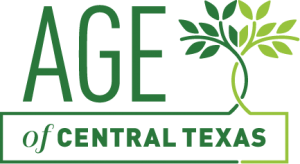
The Area Agency on Aging of the Capital Area and AGE of Central Texas are proud partners in presenting Striking a Balance 2022, the 21st annual conference for family caregivers. The two organizations have partnered for more than a decade to bring resources together that will help caregivers provide better care for their loved ones and themselves.
AGE of Central Texas obtains sponsorships for the Striking a Balance Conference. To view this years sponsors, go to the Age of Central Texas website.
Previous Conferences
Striking A Balance 2022
The 21st annual conference aids and educates family caregivers, so they can provide the best possible care for their loved ones and selves. It connects family caregivers with new resources, tools and techniques that improves their total quality of care while forging a path to one of the most valuable caregiver resources — each other. Attending nonprofessional caregivers are invited to share their own experiences with their peers during the conference. The conference features a keynote speaker during lunch, multiple break out sessions from local and national caregiving and gerontologist, and a resource fair consisting of local aging services organizations.
Breakout Sessions
| Room 1 | Room 2ond Sessions | |
|---|---|---|
| Morning Session 1 | In-home Emergency Preparedness |
Hands-on Caregiving Skills |
| Morning Session 2 | In-home Emergency Preparedness | Hands-on Caregiving Skills |
| Afternoon Session | Positive Approaches to Caregiving | Advanced Life Directives for Loved Ones |
A Caregiver Panel will take place in the main ballroom after the keynote speaker during the afternoon sessions. The panel will consist of fellow family caregivers who are providing care or have provided care to their love ones. They will share their own experiences and answer questions about their caregiving experiences.
Striking a Balance: Family Caregiver Conference 2021
The Area Agency on Aging of the Capital Area and AGE of Central Texas held three-days of webinars in August 2021 to celebrate the conferences 20th anniversary bringing the Striking a Balance: Family Caregivers Conference into the homes of the region’s family caregivers to reduce the risk and spread of COVID-19. Below are the recorded webinars, so families who couldn’t attend can still benefit from their knowledge spread during the conference.
| 10-11:30 a.m. | 1-2:30 p.m. | |
|---|---|---|
| Tuesday, Aug. 17, 2021 |
Caregiver Compassion & Self-Care |
Practical Tools for Dementia Caregiving |
|
Wednesday, Aug. 18, 2021 |
Activities Caregivers Can Share with Older Adults Living with Cognitive Issues |
The Ins and Outs of Long-Term Care |
| Thursday, Aug. 19, 2021 |
Caregiving Roundtable – What I’ve Learned as a Caregiver |
What Does the Future Hold for Caregiving? |
2021 Conference Speakers
 Michael Gill
Michael Gill
Texas Senior Living Locators
Michael Gill is the President of Texas Senior Living Locators, which works with families to help them find the best senior housing options in Central Texas. Gill is a regional expert in senior living options with extensive knowledge in Veterans benefits, home health care, non-medical home care, geriatric care management, long-term care insurance, senior real estate specialists, senior movers, and other senior adult services.
Having earned a Certified Senior Advisor (CSA)® designation, Gill stays current on local and national eldercare developments and resources. His corporate background includes banking and finance. As an investment professional in venture capital and on Wall Street, he worked for JP Morgan and Austin Capital Management. Wanting to make a difference and help families, Gill founded Texas Senior Living Locators in 2012.
Gill first moved to Austin in 1980 to attend graduate school at The University of Texas, where he received his MBA. He graduated from Villanova University with a degree in economics and history, and studied in Seville, Spain, where he became fluent in Spanish. Gill has co-authored two books: Financing and Managing Fast Growth Companies: The Venture Capital Process and The New Business Incubator: Linking Talent, Technology, Capital and Know-How. Gill is a Certified Fraud Examiner (CFE) and has taken the Texas Assisted Living Manager Courses from the Texas Assisted Living Association.
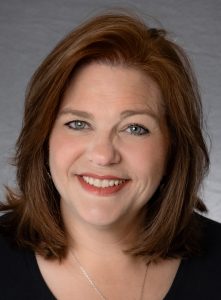 Sarah Hyde-Williams
Sarah Hyde-Williams
Senior Living Advisors of Texas
Sarah Hyde-Williams is passionate about serving seniors and their families in navigating the various options offered by the senior housing and eldercare industry. She has been an eldercare expert and community resource through her various roles within assisted living and dementia-supportive communities, along with home health and hospice care. She respects the families she guides through what is often a difficult and overwhelming time, and she becomes a trusted resource and unbiased confidant.
Hyde-Williams focus of practice includes senior housing placement, advance care planning, educational and speaking events, and training and support groups. She serves the Central Texas area as the facilitator and educator for the Lewy Body Dementia Association, and she is an active member of National Association of Senior Advocates and National Placement & Referral Alliance. She is a State of Texas Certified Assisted Living Manager, Certified Dementia Practitioner, Certified Alzheimer’s Disease & Dementia Care Trainer, Certified Montessori Dementia Care Professional, Certified Dementia Care Manager, Certified Online Training Professional.
 Dr. Barry J. Jacobs
Dr. Barry J. Jacobs
Author and National Columnist
Barry J. Jacobs, Psy.D., is a clinical psychologist, family therapist and a principal in the Philadelphia Office of Health Management Associates, a national healthcare consulting firm. A former journalist, he is the author of The Emotional Survival Guide for Caregivers (2006) and the co-author of AARP Meditations for Caregivers (2016). Jacobs just-released AARP Love and Meaning After 50. He also writes a monthly self-help column for family caregivers on AARP.org. He is the national spokesperson on family caregiving for the American Heart Association and an Honorary Board Member of the Well Spouse Association.
Bob Stephen
Vice President of Family Caregiving and Long-Term Care at AARP
Bob Stephen is the vice president of Family Caregiving and Long-Term Care at AARP. He has dedicated almost a decade to leading AARP’s development and implementation of strategy to support all family caregivers in America. Whether through advocacy, products/services, market influence, digital tools, community change efforts or consumer programs, Stephen has set the caregiving strategies for the entire nation and established partnerships with leading caregiving and health organizations to increase AARP’s impact.
He is a leader with more than 20 years of professional experience working in organizations ranging from start-up firms to large corporations. He holds an M.B.A. in Finance and Business Policy from the University of Chicago Graduate School of Business.
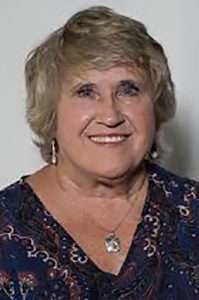 Nancy Turco
Nancy Turco
Dementia and Caregiving Expert
Nancy Turco has worked with Alzheimer’s residents and their families for more than 25 years with music therapy and activities. In addition to having written and performed jingles and parodies for KVET/Clear Channel radio, Nancy is working on her third exercise and sing-along video series for older adults.
She facilitates a monthly support group for families supporting a loved one living with Alzheimer’s disease. Turco also has facilitated workshops, seminars, and conferences for families, nurses, social workers, and activity directors who interact with people who have Alzheimer’s. She is an Ambassador for the Alzheimer’s Association.
Turco specializes in working with those living with dementia by motivating them through music and meaningful activity programs and being a support system for families. Her exercise videos are available at Best Alzheimer’s Products.
